SRCD 2021 Chat with Leaders
The Chat with Leaders (also known as Lunch with Leaders) event is a student tradition at the SRCD Biennial Meetings. This event provides a forum for students to interact with senior scholars who have central roles in the field of child development and the Society.
The Chat with Leaders (also known as “Lunch with Leaders”) event is a student tradition at the SRCD Biennial Meetings. This event provides a forum for students to interact with senior scholars who have central roles in the field of child development and the Society.
Up to five graduate students will be scheduled with each senior scholar to share conversation. Prior to the meeting, these young scholars will have the opportunity to send one or two questions to the senior scholar with whom they are scheduled to meet.
One ticket per registered attendee. For inquiries, please email scholar@srcd.org.
This event is only open to Student and Early Career attendees.
Navigate the Chat with Leaders Schedule:
Wednesday, April 7, 8:45am - 9:45am EDT
Dr. Susan Gelman
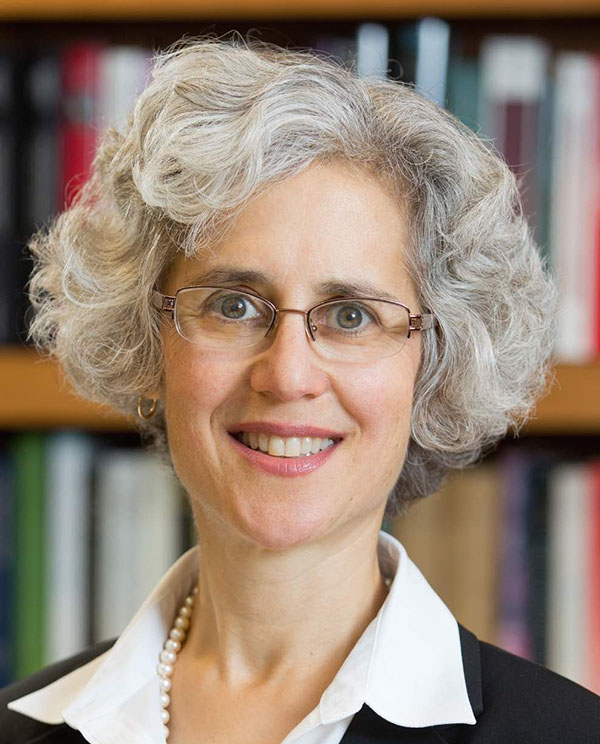 Broadly speaking, I am a cognitive developmental psychologist. My interests are in conceptual development, children's social categories (such as gender), naive theories, and how implicit cues in language shape cognition from childhood onward. I am currently funded by NIH, NSF, and the Templeton Foundation. My greatest professional achievement is the success of the students and post-docs I have mentored. I would be pleased to discuss any aspect of interest with students, including substantive research topics, professional issues (such as publication, grants, applying for jobs, running a lab), and work-life balance.
Broadly speaking, I am a cognitive developmental psychologist. My interests are in conceptual development, children's social categories (such as gender), naive theories, and how implicit cues in language shape cognition from childhood onward. I am currently funded by NIH, NSF, and the Templeton Foundation. My greatest professional achievement is the success of the students and post-docs I have mentored. I would be pleased to discuss any aspect of interest with students, including substantive research topics, professional issues (such as publication, grants, applying for jobs, running a lab), and work-life balance.
Dr. Elan Hope
 Dr. Elan Hope is an Associate Professor in the Department of Psychology at North Carolina State University and director of the Hope Lab. Dr. Hope is a native of Prince George’s County, Maryland and earned her Bachelor’s degree in Psychology from Smith College and her Ph.D. in Education and Psychology from the University of Michigan. Following graduate school, Dr. Hope completed post-doctoral research (sponsored by the William T. Grant Foundation) in Comparative Human Development at the University of Chicago. Dr. Hope takes an assets-based approach to investigate individual and community factors that promote well-being for adolescents and emerging adults who face racism and racial discrimination. In the Hope Lab, research is deeply rooted in the belief that while there are common developmental experiences among racially marginalized youth, individual differences and contextual variation require a deep exploration of diverse pathways to success and well-being. Well-being includes psychological and physical health, academic success, and civic engagement. In recent work, Dr. Hope uses both qualitative and quantitative methods to examine racial identity, critical consciousness, and racial socialization, in relation to youth activism, education, and health.
Dr. Elan Hope is an Associate Professor in the Department of Psychology at North Carolina State University and director of the Hope Lab. Dr. Hope is a native of Prince George’s County, Maryland and earned her Bachelor’s degree in Psychology from Smith College and her Ph.D. in Education and Psychology from the University of Michigan. Following graduate school, Dr. Hope completed post-doctoral research (sponsored by the William T. Grant Foundation) in Comparative Human Development at the University of Chicago. Dr. Hope takes an assets-based approach to investigate individual and community factors that promote well-being for adolescents and emerging adults who face racism and racial discrimination. In the Hope Lab, research is deeply rooted in the belief that while there are common developmental experiences among racially marginalized youth, individual differences and contextual variation require a deep exploration of diverse pathways to success and well-being. Well-being includes psychological and physical health, academic success, and civic engagement. In recent work, Dr. Hope uses both qualitative and quantitative methods to examine racial identity, critical consciousness, and racial socialization, in relation to youth activism, education, and health.
Recent publications include:
- Hope, E. C., Smith, C. D., Cryer-Coupet, Q. R., & Briggs, A. S. (2020). Relations between racial stress and critical consciousness for black adolescents. Journal of Applied Developmental Psychology, 70, 101184. http://doi.org/10.1016/j.appdev.2020.101184
- Gray, D. L., Hope, E. C., & Matthews, J. S. (2018). Black and Belonging at School: A Case for Interpersonal, Instructional, and Institutional Opportunity Structures. Educational Psychologist, 114(2), 1–17. http://doi.org/10.1080/00461520.2017.1421466
Dr. Luke W. Hyde
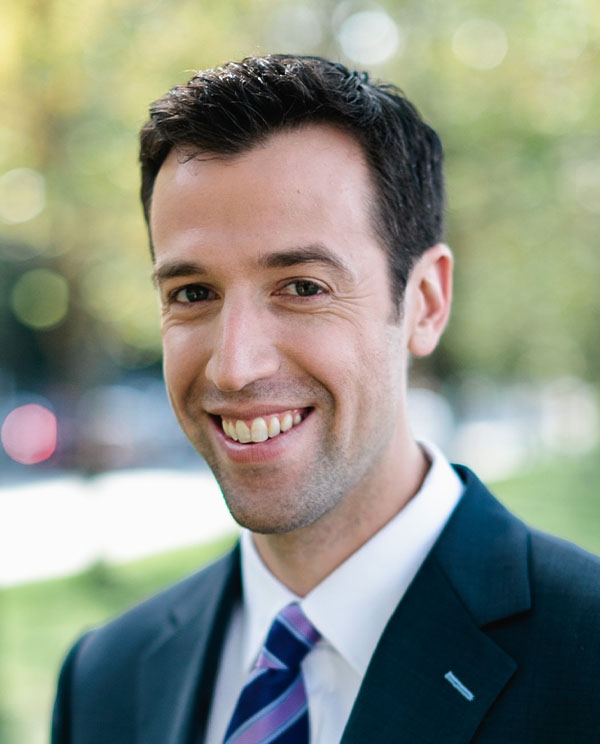 Luke Hyde focuses on developmental psychopathology, risk, and resilience. His research has focused on several themes: the development of antisocial behavior with a focus on the roles of parents and neighborhoods, the development of callous-unemotional traits and psychopathy, the effects of poverty on families and youth, gene by environment interaction and behavioral genetics, examining brain activity as a predictor of psychopathology, and examining the effects of adversity on brain and behavioral development.
Luke Hyde focuses on developmental psychopathology, risk, and resilience. His research has focused on several themes: the development of antisocial behavior with a focus on the roles of parents and neighborhoods, the development of callous-unemotional traits and psychopathy, the effects of poverty on families and youth, gene by environment interaction and behavioral genetics, examining brain activity as a predictor of psychopathology, and examining the effects of adversity on brain and behavioral development.
Dr. Anna Johnson
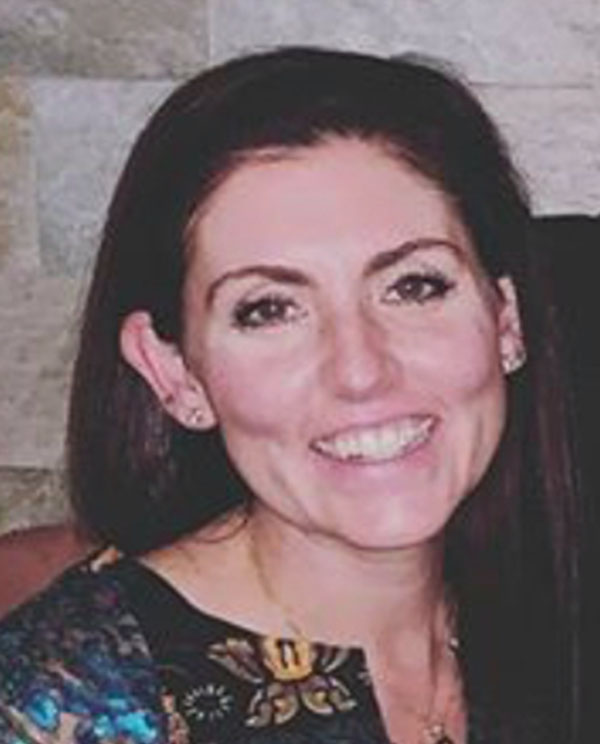 I am a hybrid scholar, with a Ph.D. in developmental psychology and a masters in public policy - I use policy and developmental methods to ask policy-relevant research questions about the impacts of public social programs (e.g., early childhood education; food assistance) on child and family wellbeing. I focus this research on low-income and otherwise vulnerable children - usually between preschool and 3rd grade age.
I am a hybrid scholar, with a Ph.D. in developmental psychology and a masters in public policy - I use policy and developmental methods to ask policy-relevant research questions about the impacts of public social programs (e.g., early childhood education; food assistance) on child and family wellbeing. I focus this research on low-income and otherwise vulnerable children - usually between preschool and 3rd grade age.
Dr. Richard Lee
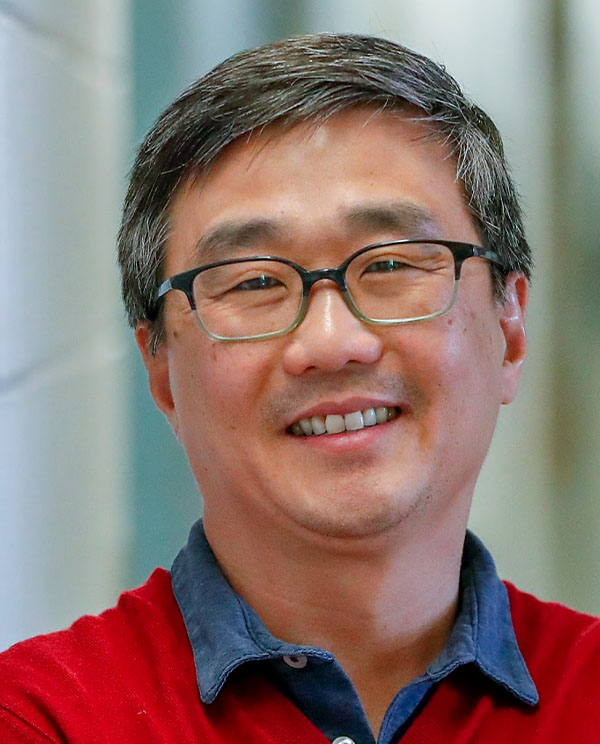 I am a Professor of Psychology at the University of Minnesota and outgoing chair of the SRCD Asian Caucus. I also am past editor of Cultural Diversity and Ethnic Minority Psychology. My research focuses on culture-specific risk and protective factors that affect the well-being and mental health, as well as informs prevention science, of Asian American and other minoritized youth and families.
I am a Professor of Psychology at the University of Minnesota and outgoing chair of the SRCD Asian Caucus. I also am past editor of Cultural Diversity and Ethnic Minority Psychology. My research focuses on culture-specific risk and protective factors that affect the well-being and mental health, as well as informs prevention science, of Asian American and other minoritized youth and families.
Dr. Jack P. Shonkoff
 Director of the Center on the Developing Child at Harvard, Chair of the National Scientific Council on the Developing Child, whose mission is to bring credible science to bear on public policy affecting children and families, and Chair of the JPB Research Network on Toxic Stress, which is developing new measures of stress effects and resilience in young children. Current work focused on advancing our understanding, capacity to measure, and ability to reduce the disruptive effects of excessive adversity on the brain and other developing biological systems, as well as to enhance the protective influences that build resilience and strengthen the foundations of healthy development, with a particular focus on young children and families facing the burdens of poverty, systemic racism, and other forms of marginalization.
Director of the Center on the Developing Child at Harvard, Chair of the National Scientific Council on the Developing Child, whose mission is to bring credible science to bear on public policy affecting children and families, and Chair of the JPB Research Network on Toxic Stress, which is developing new measures of stress effects and resilience in young children. Current work focused on advancing our understanding, capacity to measure, and ability to reduce the disruptive effects of excessive adversity on the brain and other developing biological systems, as well as to enhance the protective influences that build resilience and strengthen the foundations of healthy development, with a particular focus on young children and families facing the burdens of poverty, systemic racism, and other forms of marginalization.
Wednesday, April 7, 2:00pm - 3:00pm EDT
Dr. Eric Dearing
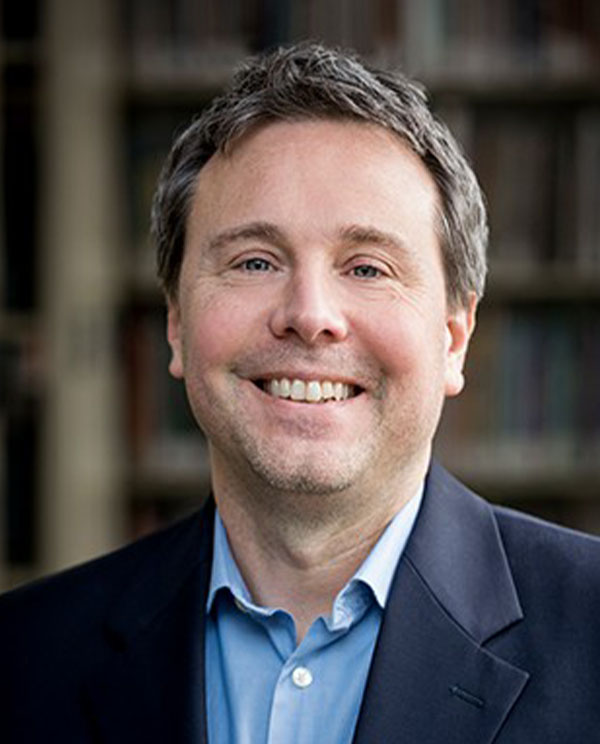 Eric Dearing is Professor of Applied Developmental Psychology in the Lynch School of Education and Human Development at Boston College and Visiting Professor in the Department of Education Sciences at the University of Oslo, Norway. Eric’s research is focused on the ways that families, early childhood educators, and family-facing professionals can promote positive outcomes for children growing up poor.
Eric Dearing is Professor of Applied Developmental Psychology in the Lynch School of Education and Human Development at Boston College and Visiting Professor in the Department of Education Sciences at the University of Oslo, Norway. Eric’s research is focused on the ways that families, early childhood educators, and family-facing professionals can promote positive outcomes for children growing up poor.
Dr. Iheoma U. Iruka
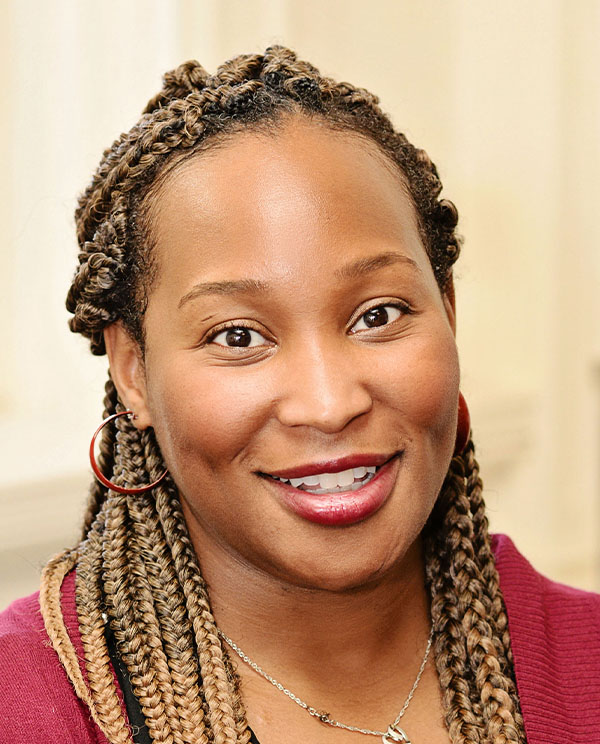 Iheoma U. Iruka, Ph.D., is a Research Professor in the Department of Public Policy, a Fellow at the Frank Porter Graham Child Development Institute (FPG), and the Founding Director of the Equity Research Action Coalition at FPG at the University of North Carolina at Chapel Hill. Dr. Iruka’s work focuses on family engagement and support, quality rating and improvement systems, and early care and education systems and programs. She focuses on ensuring excellence for young diverse learners, especially Black children and their families, through the intersection of anti-bias/anti-racist research, program, and policy.
Iheoma U. Iruka, Ph.D., is a Research Professor in the Department of Public Policy, a Fellow at the Frank Porter Graham Child Development Institute (FPG), and the Founding Director of the Equity Research Action Coalition at FPG at the University of North Carolina at Chapel Hill. Dr. Iruka’s work focuses on family engagement and support, quality rating and improvement systems, and early care and education systems and programs. She focuses on ensuring excellence for young diverse learners, especially Black children and their families, through the intersection of anti-bias/anti-racist research, program, and policy.
Dr. Peggy Keller
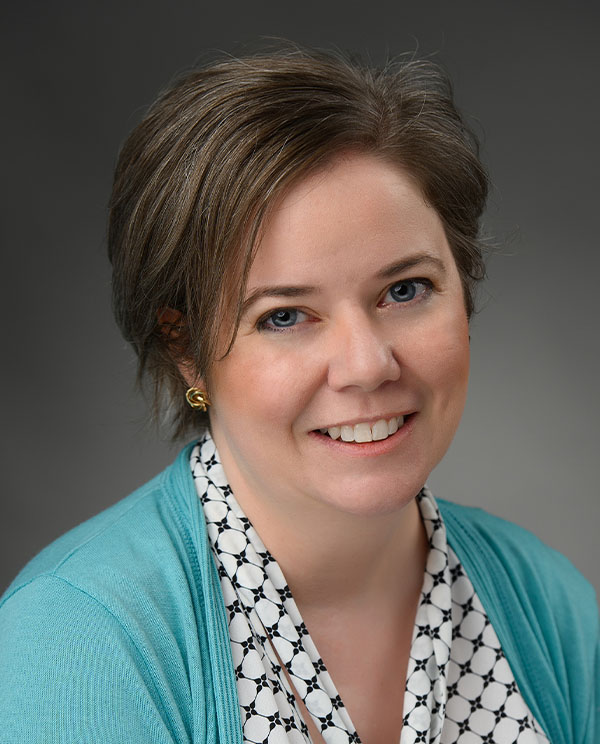 Peggy Keller is an associate professor of developmental psychology at the University of Kentucky. She received her doctorate from Notre Dame in 2006 and completed a postdoctoral fellowship in Human Development and Family Studies at Auburn University in 2008. She conducts process-oriented, biopsychosocial research on the impact of family stress on children's socio-emotional development. She has specific interests in parent alcohol problems, family conflict, and sleep.
Peggy Keller is an associate professor of developmental psychology at the University of Kentucky. She received her doctorate from Notre Dame in 2006 and completed a postdoctoral fellowship in Human Development and Family Studies at Auburn University in 2008. She conducts process-oriented, biopsychosocial research on the impact of family stress on children's socio-emotional development. She has specific interests in parent alcohol problems, family conflict, and sleep.
Dr. Su Yeong Kim
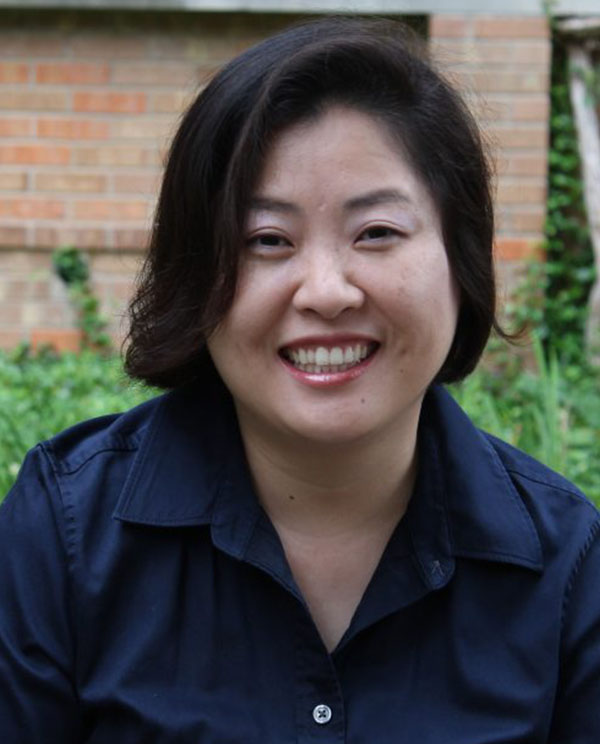 Su Yeong Kim is Professor of Human Development and Family Sciences at the University of Texas at Austin. She is the Editor of Cultural Diversity and Ethnic Minority Psychology. She is also a Fellow of the American Psychological Association, American Psychological Society, and the Asian American Psychological Association. Dr. Kim’s research examines the intersection of family and cultural contexts in the development of children of immigrants in the United States, with a focus on children of Chinese and Mexican origin. This work has been funded by the National Science Foundation, the National Institutes of Health, Russell Sage Foundation, and Spencer Foundation. Dr. Kim’s studies examine how culturally relevant developmental and cognitive processes, as well as physiological and social stressors, influence parent-child relationships and adjustment transitions and outcomes in minority adolescents and young adults. Dr. Kim’s research has revealed that the commonly held perception of Asian American parents as “tiger parents” who are adept at producing child prodigies is inaccurate. In fact, her eight-year longitudinal study of Chinese American families demonstrated that supportive parenting was the most common type of parenting, and moreover that it led to the most optimal outcomes for Chinese American adolescents, in terms of both their academic and socio-emotional adjustment. Dr. Kim’s studies on language brokering among Mexican American adolescents has revealed that children experience both a sense of burden and efficacy when translating for their Spanish-speaking parents, and that their perceptions of the language brokering experience relate to their physiological functioning, as assessed through cortisol functioning.
Su Yeong Kim is Professor of Human Development and Family Sciences at the University of Texas at Austin. She is the Editor of Cultural Diversity and Ethnic Minority Psychology. She is also a Fellow of the American Psychological Association, American Psychological Society, and the Asian American Psychological Association. Dr. Kim’s research examines the intersection of family and cultural contexts in the development of children of immigrants in the United States, with a focus on children of Chinese and Mexican origin. This work has been funded by the National Science Foundation, the National Institutes of Health, Russell Sage Foundation, and Spencer Foundation. Dr. Kim’s studies examine how culturally relevant developmental and cognitive processes, as well as physiological and social stressors, influence parent-child relationships and adjustment transitions and outcomes in minority adolescents and young adults. Dr. Kim’s research has revealed that the commonly held perception of Asian American parents as “tiger parents” who are adept at producing child prodigies is inaccurate. In fact, her eight-year longitudinal study of Chinese American families demonstrated that supportive parenting was the most common type of parenting, and moreover that it led to the most optimal outcomes for Chinese American adolescents, in terms of both their academic and socio-emotional adjustment. Dr. Kim’s studies on language brokering among Mexican American adolescents has revealed that children experience both a sense of burden and efficacy when translating for their Spanish-speaking parents, and that their perceptions of the language brokering experience relate to their physiological functioning, as assessed through cortisol functioning.
Dr. Jackie A. Nelson
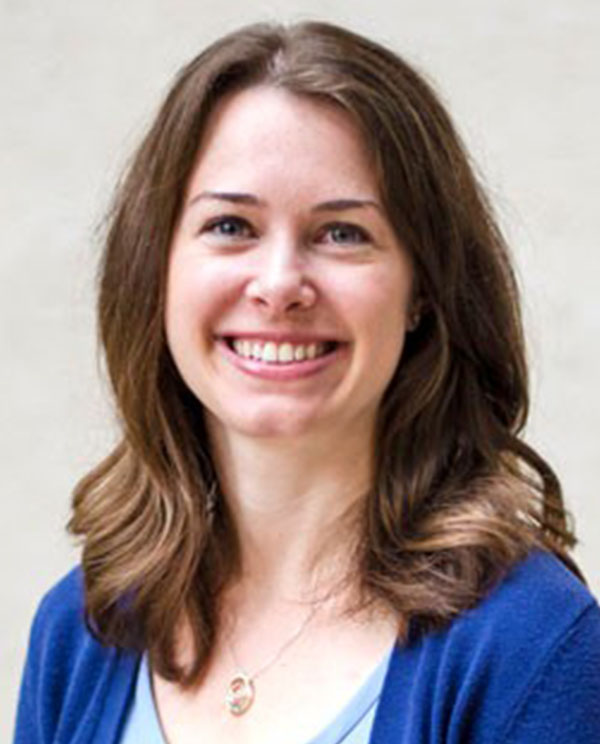 Jackie Nelson is an Associate Professor of Psychology at the University of Texas at Dallas. Her research focuses on parenting - beliefs, emotion socialization, and the quality of parent-child relationships. She also studies family stress, conflict, and social-emotional development in early and middle childhood.
Jackie Nelson is an Associate Professor of Psychology at the University of Texas at Dallas. Her research focuses on parenting - beliefs, emotion socialization, and the quality of parent-child relationships. She also studies family stress, conflict, and social-emotional development in early and middle childhood.
Dr. Julie Poehlmann-Tynan
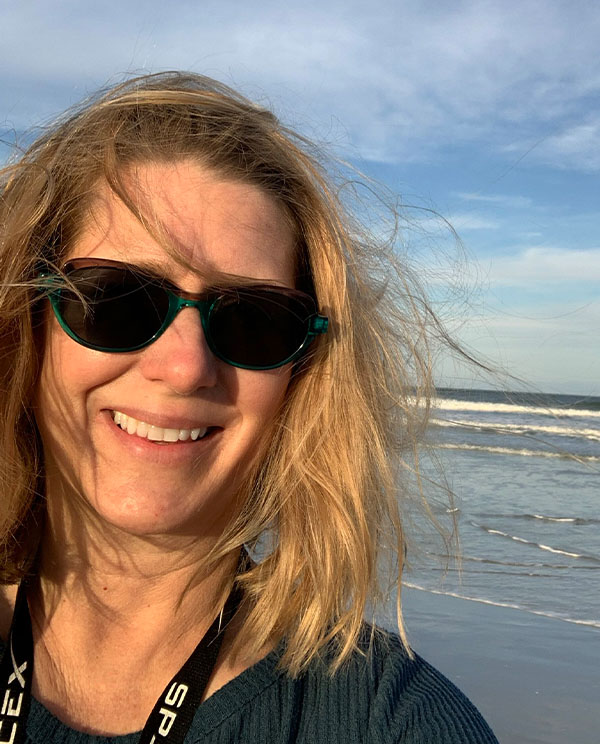 I study young children and families who experience risks including parental incarceration, poverty, or premature birth. I focus on family relationships, contextual factors, and interventions designed to build resilience in individuals, families, and communities.
I study young children and families who experience risks including parental incarceration, poverty, or premature birth. I focus on family relationships, contextual factors, and interventions designed to build resilience in individuals, families, and communities.
Dr. Barbara Rogoff
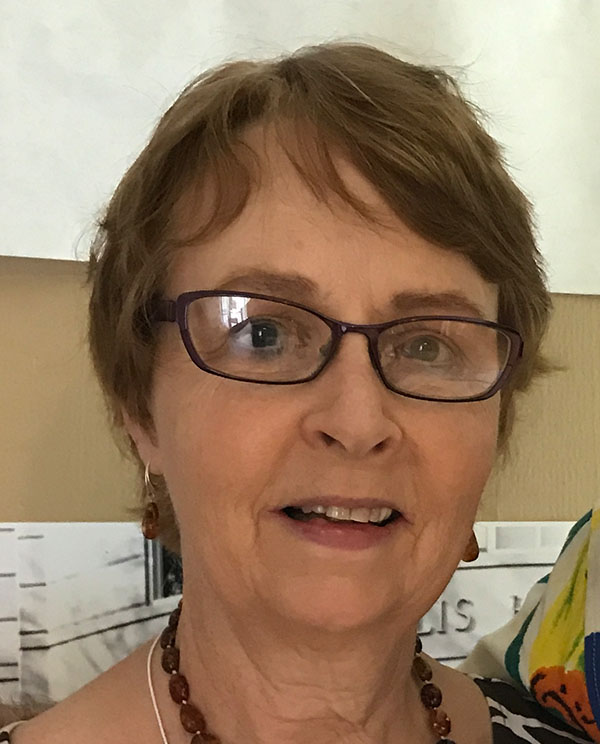 Barbara Rogoff is UCSC Distinguished Professor of Psychology at the University of California-Santa Cruz. She investigates cultural aspects of children’s learning and how communities arrange for learning, finding especially sophisticated collaboration and attention among children from Indigenous communities of the Americas. She received a Distinguished Lifetime Contributions Award (Society for Research in Child Development) and the Chemers Award for Outstanding Research (UCSC). She is a Fellow of the National Academy of Education, AAA, APS, APA, and AERA. She has held the University of California Presidential Chair and Fellowships of the Center for Advanced Study in the Behavioral Sciences, Kellogg Foundation, Spencer Foundation, and the Exploratorium, and served as Editor of Human Development.
Barbara Rogoff is UCSC Distinguished Professor of Psychology at the University of California-Santa Cruz. She investigates cultural aspects of children’s learning and how communities arrange for learning, finding especially sophisticated collaboration and attention among children from Indigenous communities of the Americas. She received a Distinguished Lifetime Contributions Award (Society for Research in Child Development) and the Chemers Award for Outstanding Research (UCSC). She is a Fellow of the National Academy of Education, AAA, APS, APA, and AERA. She has held the University of California Presidential Chair and Fellowships of the Center for Advanced Study in the Behavioral Sciences, Kellogg Foundation, Spencer Foundation, and the Exploratorium, and served as Editor of Human Development.
Her recent books have received major awards: Learning Together (finalist for the Maccoby Award, APA); The Cultural Nature of Human Development (APA William James Book Award); and Developing Destinies: A Mayan Midwife and Town (Maccoby Award, APA). Recent volumes include Learning by Observing and Pitching In to Family and Community Endeavors and Children Learn by Observing and Contributing to Family and Community Endeavors. See www.learningbyobservingandpitchingin.com.
Dr. Margaret Beale Spencer
 Margaret Beale Spencer is the Marshall Field IV Professor of Urban Education in the department of Comparative Human Development and Professor of Life Course Human Development at the University of Chicago. A developmental psychologist, she is also an alumna of the Committee on Human Development at the University of Chicago. Before returning to Chicago, she was the endowed Board of Overseers Professor and Director of the Interdisciplinary Studies of Human Development (ISHD) Program and faculty member in the Graduate School of Education at the University of Pennsylvania (Psychology in Education Division). Additionally, she was Director of the University of Pennsylvania's Center for Health Achievement Neighborhood Growth and Ethnic Studies (CHANGES), and also guided as its inaugural director, the W. E. B. Du Bois Collective Research Institute. Guiding the noted efforts and continuing to frame her scholarship, Spencer's Phenomenological Variant of Ecological Systems Theory (P-VEST) provides an identity-focused cultural ecological perspective which frames her gender, race, culture and context acknowledging program of human development research. Recognizing the universality of human vulnerability, the theory addresses resiliency, identity, and competence formation processes for diverse humans situated both in the United States and abroad.
Margaret Beale Spencer is the Marshall Field IV Professor of Urban Education in the department of Comparative Human Development and Professor of Life Course Human Development at the University of Chicago. A developmental psychologist, she is also an alumna of the Committee on Human Development at the University of Chicago. Before returning to Chicago, she was the endowed Board of Overseers Professor and Director of the Interdisciplinary Studies of Human Development (ISHD) Program and faculty member in the Graduate School of Education at the University of Pennsylvania (Psychology in Education Division). Additionally, she was Director of the University of Pennsylvania's Center for Health Achievement Neighborhood Growth and Ethnic Studies (CHANGES), and also guided as its inaugural director, the W. E. B. Du Bois Collective Research Institute. Guiding the noted efforts and continuing to frame her scholarship, Spencer's Phenomenological Variant of Ecological Systems Theory (P-VEST) provides an identity-focused cultural ecological perspective which frames her gender, race, culture and context acknowledging program of human development research. Recognizing the universality of human vulnerability, the theory addresses resiliency, identity, and competence formation processes for diverse humans situated both in the United States and abroad.
Dr. Laura Wray-Lake
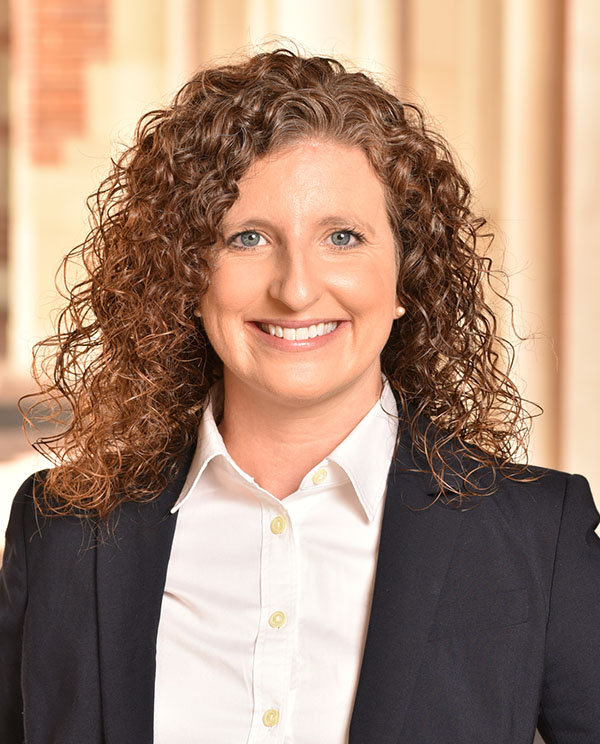 Laura Wray-Lake received a Ph.D. in Human Development and Family Studies from Penn State University in 2010. After assistant professorships at Claremont Graduate University (2010-2013) and University of Rochester (2013-2016), Dr. Wray-Lake joined the Department of Social Welfare at University of California, Los Angeles, where she is an Associate Professor. Wray-Lake’s program of research focuses on how and why young people become civically engaged. She has published over 60 research articles and book chapters, and her work uses multiple methodologies and takes developmental, cultural, and contextual perspectives in studying youth civic engagement. Recent work includes a SRCD Monograph (Wray-Lake & Abrams, 2020) that presents an in-depth qualitative examination of civic engagement among urban youth of color. In a 2020 paper in Developmental Psychology, Wray-Lake and colleagues documented racial/ethnic, gender, and social class differences in civic engagement trajectories across the transition to adulthood. She has received grant funding from the National Science Foundation, Templeton Foundation, Spencer Foundation, and the Corporation for National and Community Service. In 2020, she was awarded a Mid-Career Award for Research Excellence from the Society for Research on Adolescence. Dr. Wray-Lake currently serves as an Associate Editor at the Journal of Research on Adolescence and as an elected member of the Executive Council of the Society for Research on Adolescence.
Laura Wray-Lake received a Ph.D. in Human Development and Family Studies from Penn State University in 2010. After assistant professorships at Claremont Graduate University (2010-2013) and University of Rochester (2013-2016), Dr. Wray-Lake joined the Department of Social Welfare at University of California, Los Angeles, where she is an Associate Professor. Wray-Lake’s program of research focuses on how and why young people become civically engaged. She has published over 60 research articles and book chapters, and her work uses multiple methodologies and takes developmental, cultural, and contextual perspectives in studying youth civic engagement. Recent work includes a SRCD Monograph (Wray-Lake & Abrams, 2020) that presents an in-depth qualitative examination of civic engagement among urban youth of color. In a 2020 paper in Developmental Psychology, Wray-Lake and colleagues documented racial/ethnic, gender, and social class differences in civic engagement trajectories across the transition to adulthood. She has received grant funding from the National Science Foundation, Templeton Foundation, Spencer Foundation, and the Corporation for National and Community Service. In 2020, she was awarded a Mid-Career Award for Research Excellence from the Society for Research on Adolescence. Dr. Wray-Lake currently serves as an Associate Editor at the Journal of Research on Adolescence and as an elected member of the Executive Council of the Society for Research on Adolescence.
Thursday, April 8, 8:45am - 9:45am EDT
Dr. Brenda Jones Harden
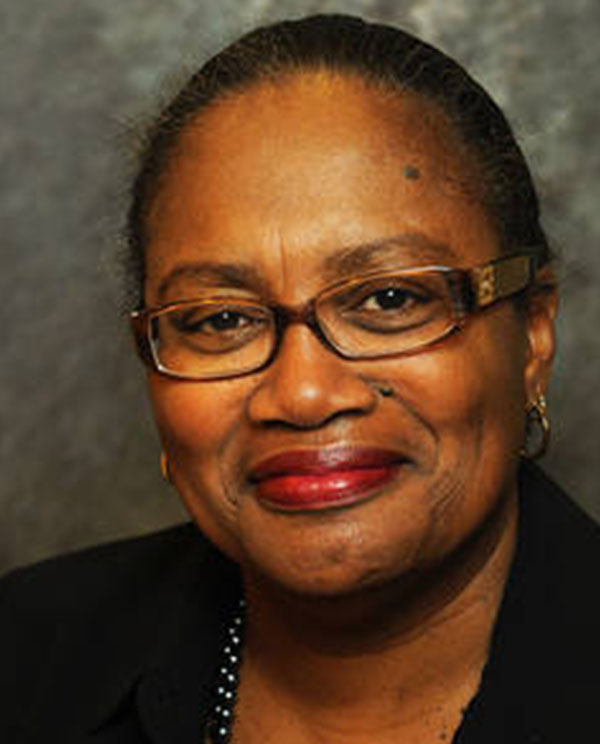 My work is at the intersection of research, practice, and policy. I study the developmental outcomes of children exposed to early adversity and the implementation and impact of programs designed to promote positive outcomes for these children and their families.
My work is at the intersection of research, practice, and policy. I study the developmental outcomes of children exposed to early adversity and the implementation and impact of programs designed to promote positive outcomes for these children and their families.
Dr. Valerie Knopik
 Valerie Knopik is the Ben & Maxine Miller Professor and Department Head of Human Development and Family Studies at Purdue University. Dr. Knopik is an Associate Editor for Behavior Genetics, consulting editor for Child Development, serves on the editorial board of Psychological Medicine, and is the lead author on the textbook, Behavioral Genetics. Professor Knopik’s primary area of research focuses on joint effects of genetic, epigenetic and environmental (specifically prenatal and early postnatal) risk factors on birth outcomes, externalizing behavior (ADHD, conduct disorder), associated learning and cognitive deficits, and subsequent substance use. She has received two Research Mentoring Awards for Outstanding Mentorship and is currently the primary mentor on multiple NIH career development awards focused on biobehavioral pathways of development to adolescent substance use, genetic comorbidity of adolescent smoking and ADHD, and methodological approaches to gene-set and gene-network investigations of alcohol dependence.
Valerie Knopik is the Ben & Maxine Miller Professor and Department Head of Human Development and Family Studies at Purdue University. Dr. Knopik is an Associate Editor for Behavior Genetics, consulting editor for Child Development, serves on the editorial board of Psychological Medicine, and is the lead author on the textbook, Behavioral Genetics. Professor Knopik’s primary area of research focuses on joint effects of genetic, epigenetic and environmental (specifically prenatal and early postnatal) risk factors on birth outcomes, externalizing behavior (ADHD, conduct disorder), associated learning and cognitive deficits, and subsequent substance use. She has received two Research Mentoring Awards for Outstanding Mentorship and is currently the primary mentor on multiple NIH career development awards focused on biobehavioral pathways of development to adolescent substance use, genetic comorbidity of adolescent smoking and ADHD, and methodological approaches to gene-set and gene-network investigations of alcohol dependence.
Dr. Gabriela Livas-Stein
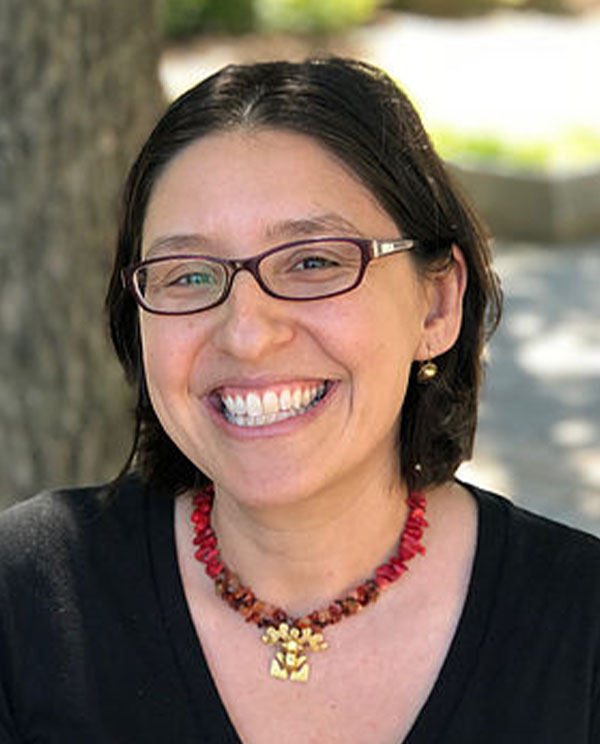 Gabriela Livas Stein, Ph.D., is a licensed psychologist and Associate Professor of Clinical Psychology within the Department of Psychology at UNCG. Dr. Stein’s program of research identifies individual risk and protective processes for Latinx and other minoritized youth when facing cultural stressors (e.g., discrimination, acculturative stress), and seeks to improve mental health treatment access for Latinx families. Her research has been funded by NIDA, NIMH, and PCORI. She serves as co-chair of the Ethnic Racial Issues Committee of the Society of Research on Child Development, and is a past chair of the Latinx Caucus. She also is currently the Vice President of Programming for the Society of Research on Adolescence. Clinically, she specializes in the provision of therapeutic services to Latinx families, and provides training to providers working with Latinx communities.
Gabriela Livas Stein, Ph.D., is a licensed psychologist and Associate Professor of Clinical Psychology within the Department of Psychology at UNCG. Dr. Stein’s program of research identifies individual risk and protective processes for Latinx and other minoritized youth when facing cultural stressors (e.g., discrimination, acculturative stress), and seeks to improve mental health treatment access for Latinx families. Her research has been funded by NIDA, NIMH, and PCORI. She serves as co-chair of the Ethnic Racial Issues Committee of the Society of Research on Child Development, and is a past chair of the Latinx Caucus. She also is currently the Vice President of Programming for the Society of Research on Adolescence. Clinically, she specializes in the provision of therapeutic services to Latinx families, and provides training to providers working with Latinx communities.
Dr. Frosso Motti-Stefanidi
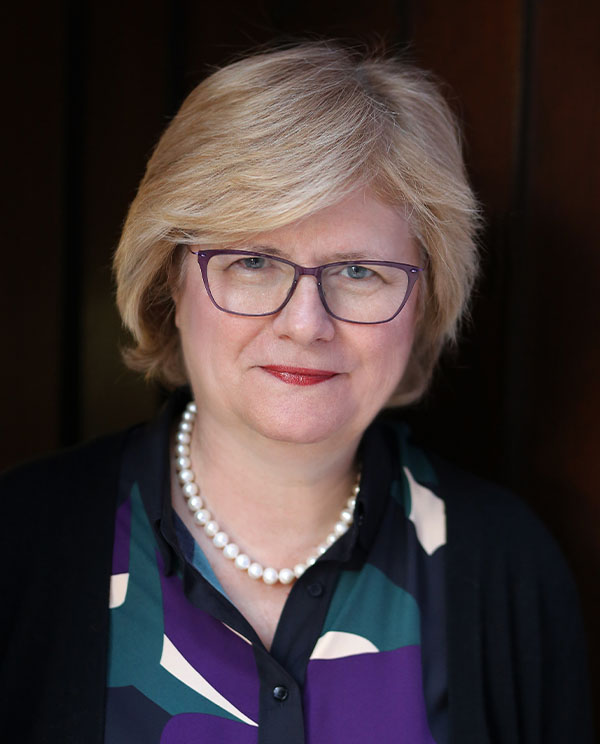 Frosso Motti-Stefanidi is Professor of Psychology at the National and Kapodistrian University of Athens, Greece. She is an internationally recognized scholar of immigrant and refugee youth adaptation. Taking a strengths-based approach, she examines immigrant youth adaptation from a resilience perspective. In her work she addresses the question “Who among immigrant and refugee youth adapt well and why? She has developed the Athena Studies of Resilient Adaptation (AStRA) project, which includes two large longitudinal studies of over 2500 middle school students, focusing on the adaptation and well-being of immigrant youth, and of their Greek classmates, in the school context. She received her Ph.D. in 1986 from the Institute of Child Development, University of Minnesota. She has received the Distinguished International Alumni Award from the University of Minnesota, has been elected as a Fellow of the Association for Psychological Science (APS), and serves as a Chen Yidan Visiting Global Fellow at the Graduate School of Education, Harvard University. She is currently serving as President of the International Consortium of Developmental Science Societies (ICDSS), as a member of the Governing Council of SRCD and as a Member of the Council of ISSBD. She has served as President of the European Association of Developmental Psychology (EADP), as President of the European Association of Personality Psychology (EAPP) and as co-chair of SRCD’s International Affairs Committee.
Frosso Motti-Stefanidi is Professor of Psychology at the National and Kapodistrian University of Athens, Greece. She is an internationally recognized scholar of immigrant and refugee youth adaptation. Taking a strengths-based approach, she examines immigrant youth adaptation from a resilience perspective. In her work she addresses the question “Who among immigrant and refugee youth adapt well and why? She has developed the Athena Studies of Resilient Adaptation (AStRA) project, which includes two large longitudinal studies of over 2500 middle school students, focusing on the adaptation and well-being of immigrant youth, and of their Greek classmates, in the school context. She received her Ph.D. in 1986 from the Institute of Child Development, University of Minnesota. She has received the Distinguished International Alumni Award from the University of Minnesota, has been elected as a Fellow of the Association for Psychological Science (APS), and serves as a Chen Yidan Visiting Global Fellow at the Graduate School of Education, Harvard University. She is currently serving as President of the International Consortium of Developmental Science Societies (ICDSS), as a member of the Governing Council of SRCD and as a Member of the Council of ISSBD. She has served as President of the European Association of Developmental Psychology (EADP), as President of the European Association of Personality Psychology (EAPP) and as co-chair of SRCD’s International Affairs Committee.
Dr. Enrique Neblett
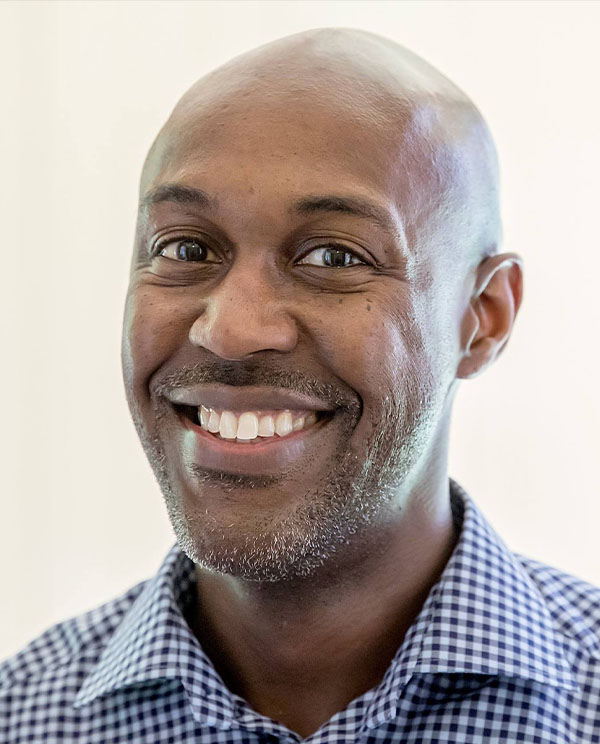 Dr. Enrique Neblett is one of the leading U.S. scholars in the area of racism and health, with a particular focus on understanding how racism-related stress influences the mental and physical health of young Black Americans. Through a research program that integrates psychology, biology, developmental and family science, and public health, his scholarship has added to the body of evidence that: 1) racism-related stress undermines the health and well-being of Black adolescents and young adults; and 2) Black youth's beliefs about the significance and meaning of race, as well as family messages about race, can protect youth from the psychological and physical harm associated with exposure to racial discrimination.
Dr. Enrique Neblett is one of the leading U.S. scholars in the area of racism and health, with a particular focus on understanding how racism-related stress influences the mental and physical health of young Black Americans. Through a research program that integrates psychology, biology, developmental and family science, and public health, his scholarship has added to the body of evidence that: 1) racism-related stress undermines the health and well-being of Black adolescents and young adults; and 2) Black youth's beliefs about the significance and meaning of race, as well as family messages about race, can protect youth from the psychological and physical harm associated with exposure to racial discrimination.
Thursday, April 8, 2:00pm - 3:00pm EDT
Dr. Charissa S. L. Cheah
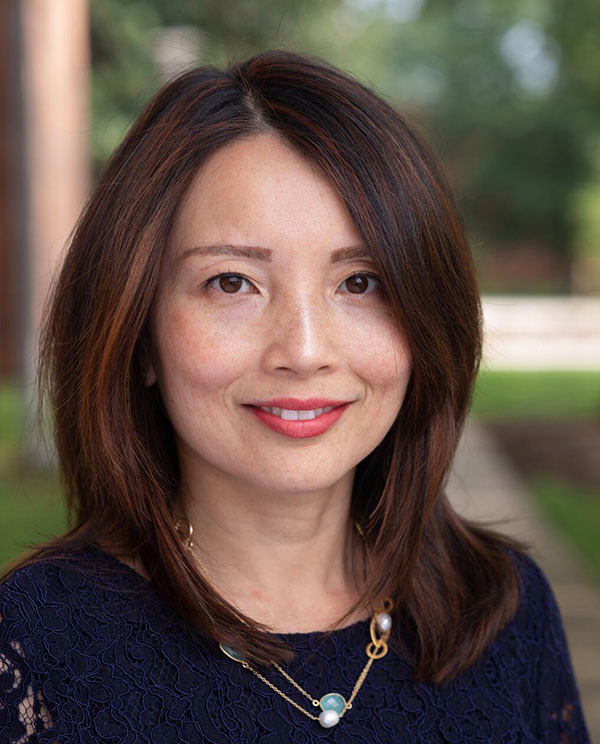 Charissa S. L. Cheah, Ph.D. is a Professor in the Department of Psychology (Applied Developmental Program) at the University of Maryland, Baltimore County. As a cultural developmental scientist, Dr. Cheah utilizes mixed-method approaches to explore how individual characteristics, relationships, socialization agents, and contexts interact to influence social-emotional development, mental health and physical health. She is particularly interested in understanding these processes among ethnic/racial/religious minority families and those with immigrant and marginalized statuses, with the end goal of contributing to a more just and equitable science and society. Dr. Cheah is a Fellow of the American Psychological Association and of the Association for Psychological Science. She is also a recipient of a Fulbright Research Fellowship to Italy. Dr. Cheah received a Young Scholar Award from the Foundation for Child Development’s Changing Faces of America’s Children program, and a Visiting Scientist Fellowship from the Scientific and Technological Research Council of Turkey. Dr. Cheah is the past-Chair of the Society for Research in Child Development (SRCD) Asian Caucus and serves on the International Affairs Committee and Rapid Assessment and Response Strategy Team of the SRCD. She was also an elected member of the Executive Committee of the International Society for the Study of Behavioral Development (ISSBD). Dr. Cheah is an Associate Editor for the journal Child Development and sits on the editorial boards of Parenting: Science and Practice and The International Journal of Behavioral Development. Dr. Cheah’s research has been funded by the National Institutes of Health, the National Science Foundation, Social Sciences and Humanities Research Council of Canada, and other private foundations. Most recently, Dr. Cheah received a National Science Foundation RAPID (Rapid Response Research) award to examine racial discrimination, identity development, and adjustment among Chinese American families during the COVID-19 pandemic.
Charissa S. L. Cheah, Ph.D. is a Professor in the Department of Psychology (Applied Developmental Program) at the University of Maryland, Baltimore County. As a cultural developmental scientist, Dr. Cheah utilizes mixed-method approaches to explore how individual characteristics, relationships, socialization agents, and contexts interact to influence social-emotional development, mental health and physical health. She is particularly interested in understanding these processes among ethnic/racial/religious minority families and those with immigrant and marginalized statuses, with the end goal of contributing to a more just and equitable science and society. Dr. Cheah is a Fellow of the American Psychological Association and of the Association for Psychological Science. She is also a recipient of a Fulbright Research Fellowship to Italy. Dr. Cheah received a Young Scholar Award from the Foundation for Child Development’s Changing Faces of America’s Children program, and a Visiting Scientist Fellowship from the Scientific and Technological Research Council of Turkey. Dr. Cheah is the past-Chair of the Society for Research in Child Development (SRCD) Asian Caucus and serves on the International Affairs Committee and Rapid Assessment and Response Strategy Team of the SRCD. She was also an elected member of the Executive Committee of the International Society for the Study of Behavioral Development (ISSBD). Dr. Cheah is an Associate Editor for the journal Child Development and sits on the editorial boards of Parenting: Science and Practice and The International Journal of Behavioral Development. Dr. Cheah’s research has been funded by the National Institutes of Health, the National Science Foundation, Social Sciences and Humanities Research Council of Canada, and other private foundations. Most recently, Dr. Cheah received a National Science Foundation RAPID (Rapid Response Research) award to examine racial discrimination, identity development, and adjustment among Chinese American families during the COVID-19 pandemic.
Dr. Ann Easterbrooks
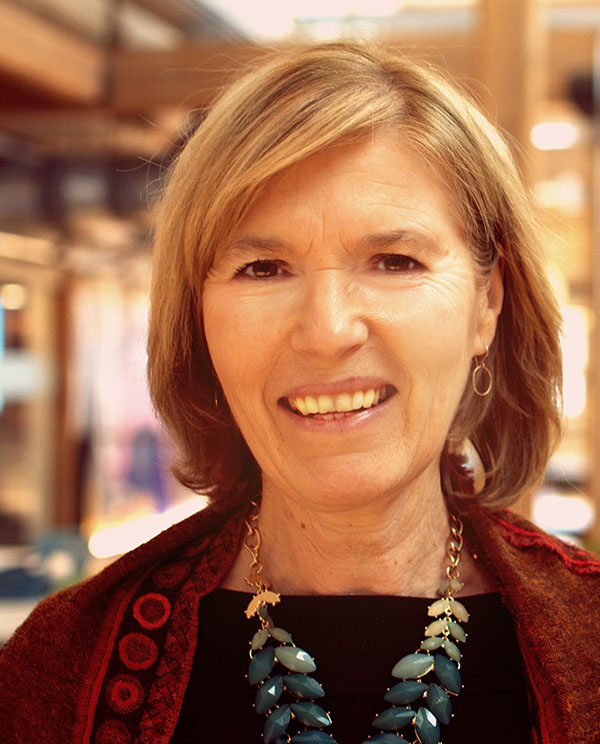 I am an applied developmental scientist whose work focuses on the individual, relational, familial, and broader contextual characteristics that present challenges and opportunities for developmental thriving among infants, young children, and parents. My work embraces a bioecological approach to understanding the mutual relations between people and their contexts. I work within a multidisciplinary approach, collaborating with investigators and students using both basic and applied research frameworks with the aim of fostering the integration of research, policy, and practice. My goal is to conduct research that can be translated into programs and policies that will enhance the lives of diverse children and their families. I direct the Tufts Interdisciplinary Evaluation Research (TIER) lab at Tufts University.
I am an applied developmental scientist whose work focuses on the individual, relational, familial, and broader contextual characteristics that present challenges and opportunities for developmental thriving among infants, young children, and parents. My work embraces a bioecological approach to understanding the mutual relations between people and their contexts. I work within a multidisciplinary approach, collaborating with investigators and students using both basic and applied research frameworks with the aim of fostering the integration of research, policy, and practice. My goal is to conduct research that can be translated into programs and policies that will enhance the lives of diverse children and their families. I direct the Tufts Interdisciplinary Evaluation Research (TIER) lab at Tufts University.
Dr. Linda C. Halgunseth
 Linda C. Halgunseth is an associate professor in the department of Human Development and Family Sciences at the University of Connecticut and associate editor for the Journal of Research on Adolescence. Her research focuses on sociocultural influences on parenting, culturally sensitive parenting measurement, and family engagement with diverse families. She has studied parenting in Latinx, African American, and Chinese families. Dr. Halgunseth holds and has held many leadership positions in national associations such as Society for Research in Child Development (SRCD) and Society for Research on Adolescence (SRA). She currently serves as Past Chair for the SRCD Latinx Caucus.
Linda C. Halgunseth is an associate professor in the department of Human Development and Family Sciences at the University of Connecticut and associate editor for the Journal of Research on Adolescence. Her research focuses on sociocultural influences on parenting, culturally sensitive parenting measurement, and family engagement with diverse families. She has studied parenting in Latinx, African American, and Chinese families. Dr. Halgunseth holds and has held many leadership positions in national associations such as Society for Research in Child Development (SRCD) and Society for Research on Adolescence (SRA). She currently serves as Past Chair for the SRCD Latinx Caucus.
Dr. Antoinette M. Landor
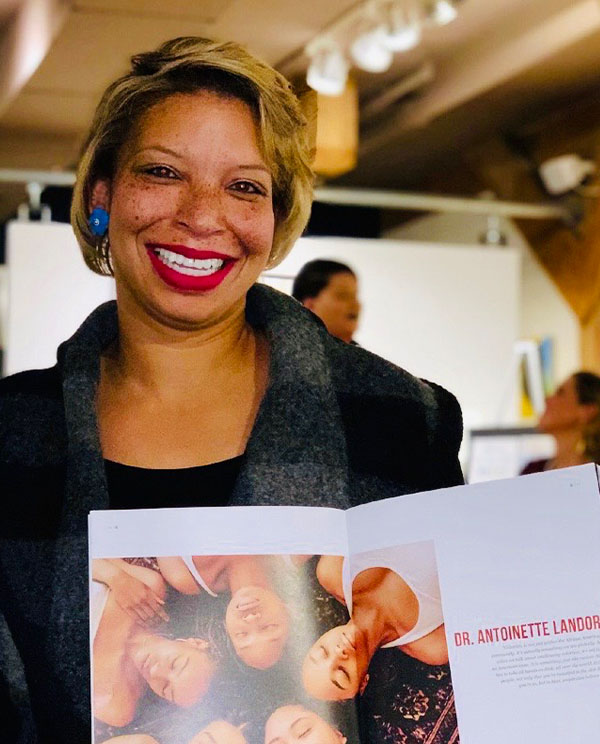 Dr. Antoinette M. Landor is an Associate Professor and the Millsap Professor of Diversity and Multicultural Studies in the Department of Human Development and Family Science at the University of Missouri. She is co-founder and Associate Director of the Center for Body Image Research and Policy. Dr. Landor received a Ph.D. from the University of Georgia and completed a postdoctoral fellowship at the University of North Carolina-Chapel Hill. Her research focuses on the impact of colorism and racism on individual, relational, and family health and functioning. She also examines how sociocultural factors influence the sexual and romantic relationship behaviors of adolescents and young adults. Her work has appeared in top-tier journals, such as Perspectives on Psychological Science, Journal of Youth and Adolescence, and Archives of Sexual Behavior, and has been presented at domestic and international conferences, such as the European Congress of Psychology in Milan, Italy and the International Society for the Study of Behavioral Development in Gold Coast, Australia. She has been interviewed by EBONY Magazine, Well + Good Magazine, Blakademik TV in the United Kingdom, and her research has been cited in national and international media outlets such as Psychology Today, NYMagazine, Salon, Medium, New York Daily News, and MedIndia:Network for Health. References to her research has also been cited in textbooks/handbooks, including Belgrave and Allison’s (2018) African American Psychology: From Africa to America (4th Edition), Cicchetti’s (2016) Developmental Psychopathology, Risk, Resilience, and Intervention (Vol. 4), New York Times Bestseller How to Be an Antiracist by Ibram X. Kendi (2019), and courses around the country. Among her research awards, Dr. Landor is the recent recipient of the prestigious President’s Award for Early Career Excellence from the University of Missouri System and the Provost’s Outstanding Junior Faculty Research Award. In addition, her work has received national awards, and her article— Landor & McNeil Smith, 2019— was published in one of the top five academic journals in psychology and won the 2020 Best Paper Award from the National Council on Family Relations and her article— Landor & Barr, 2018—received the Wiley Publishing Certificate of Recognition as One of the Top Downloaded Articles from Journal of Family Theory & Review. Dr. Landor teaches thought-provoking courses on Black Families, Youth Culture, and Human Sexuality. She is also the recipient of several awards for teaching and mentoring including the National Undergraduate Research Mentor Award from the Association of Public and Land-grant Universities Board on Human Sciences, the Gold Chalk Award that recognizes significant contributions to the education and training of graduate students, the Undergraduate Research Mentor of the Year, and the Distinguished Faculty Service Award. Dr. Landor grew up in Lake Charles, Louisiana, attended Grambling State University for her undergraduate studies, and is a proud and active member of the Alpha Kappa Alpha Sorority, Incorporated and the Links, Incorporated (Charter Member of Central Missouri Chapter). In her spare time she enjoys international travel, listening to music, and shopping.
Dr. Antoinette M. Landor is an Associate Professor and the Millsap Professor of Diversity and Multicultural Studies in the Department of Human Development and Family Science at the University of Missouri. She is co-founder and Associate Director of the Center for Body Image Research and Policy. Dr. Landor received a Ph.D. from the University of Georgia and completed a postdoctoral fellowship at the University of North Carolina-Chapel Hill. Her research focuses on the impact of colorism and racism on individual, relational, and family health and functioning. She also examines how sociocultural factors influence the sexual and romantic relationship behaviors of adolescents and young adults. Her work has appeared in top-tier journals, such as Perspectives on Psychological Science, Journal of Youth and Adolescence, and Archives of Sexual Behavior, and has been presented at domestic and international conferences, such as the European Congress of Psychology in Milan, Italy and the International Society for the Study of Behavioral Development in Gold Coast, Australia. She has been interviewed by EBONY Magazine, Well + Good Magazine, Blakademik TV in the United Kingdom, and her research has been cited in national and international media outlets such as Psychology Today, NYMagazine, Salon, Medium, New York Daily News, and MedIndia:Network for Health. References to her research has also been cited in textbooks/handbooks, including Belgrave and Allison’s (2018) African American Psychology: From Africa to America (4th Edition), Cicchetti’s (2016) Developmental Psychopathology, Risk, Resilience, and Intervention (Vol. 4), New York Times Bestseller How to Be an Antiracist by Ibram X. Kendi (2019), and courses around the country. Among her research awards, Dr. Landor is the recent recipient of the prestigious President’s Award for Early Career Excellence from the University of Missouri System and the Provost’s Outstanding Junior Faculty Research Award. In addition, her work has received national awards, and her article— Landor & McNeil Smith, 2019— was published in one of the top five academic journals in psychology and won the 2020 Best Paper Award from the National Council on Family Relations and her article— Landor & Barr, 2018—received the Wiley Publishing Certificate of Recognition as One of the Top Downloaded Articles from Journal of Family Theory & Review. Dr. Landor teaches thought-provoking courses on Black Families, Youth Culture, and Human Sexuality. She is also the recipient of several awards for teaching and mentoring including the National Undergraduate Research Mentor Award from the Association of Public and Land-grant Universities Board on Human Sciences, the Gold Chalk Award that recognizes significant contributions to the education and training of graduate students, the Undergraduate Research Mentor of the Year, and the Distinguished Faculty Service Award. Dr. Landor grew up in Lake Charles, Louisiana, attended Grambling State University for her undergraduate studies, and is a proud and active member of the Alpha Kappa Alpha Sorority, Incorporated and the Links, Incorporated (Charter Member of Central Missouri Chapter). In her spare time she enjoys international travel, listening to music, and shopping.
Dr. Janae Neiderhiser
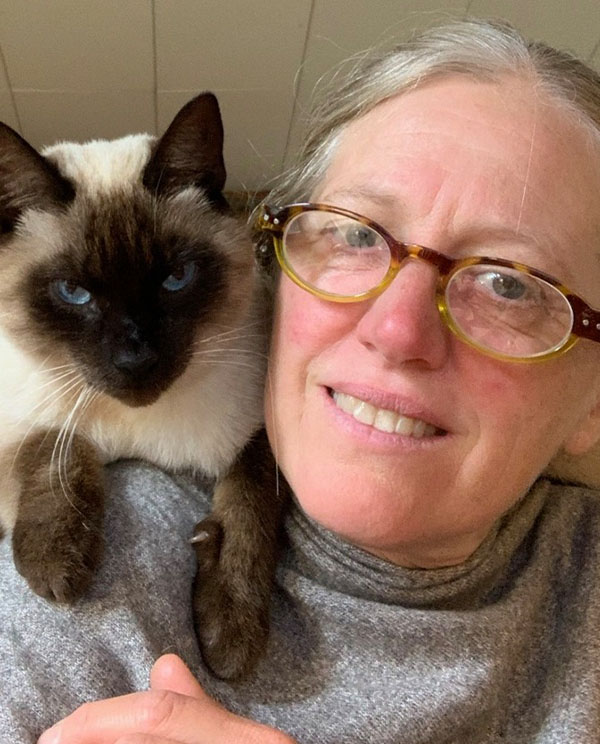 Dr. Neiderhiser’s research is focused on understanding how interpersonal relationships, especially those within the family, are influenced by genetic factors via gene-environment correlation and interaction and the subsequent links to later adjustment in children and adults. More recently her work has included the examination of prenatal and early life risks in relation to child and adult adjustment. Dr. Neiderhiser interested in understanding how interpersonal relationships shape and are shaped by children throughout the lifespan. One of the more novel findings emerging from her current work is that prenatal and early life risks appear to be mechanisms by which genetic factors influence child adjustment. Dr. Neiderhiser has used a variety of genetically informed research designs to examine gene-environment interplay including a longitudinal adolescent twin/sibling design, a study of twin parents, a prospective longitudinal parent-offspring adoption study, a study of preadolescent twin children oversampled for residing in high-risk neighborhoods, and a large international data harmonization study including multiple adult twin samples. These studies include extensive assessment of the environment within the household, interpersonal relationships, adult and child adjustment, temperament and personality and other related measures and together span the lifespan. For all of this research she has worked closely with graduate students, postdoctoral scholars, and other early career researchers.
Dr. Neiderhiser’s research is focused on understanding how interpersonal relationships, especially those within the family, are influenced by genetic factors via gene-environment correlation and interaction and the subsequent links to later adjustment in children and adults. More recently her work has included the examination of prenatal and early life risks in relation to child and adult adjustment. Dr. Neiderhiser interested in understanding how interpersonal relationships shape and are shaped by children throughout the lifespan. One of the more novel findings emerging from her current work is that prenatal and early life risks appear to be mechanisms by which genetic factors influence child adjustment. Dr. Neiderhiser has used a variety of genetically informed research designs to examine gene-environment interplay including a longitudinal adolescent twin/sibling design, a study of twin parents, a prospective longitudinal parent-offspring adoption study, a study of preadolescent twin children oversampled for residing in high-risk neighborhoods, and a large international data harmonization study including multiple adult twin samples. These studies include extensive assessment of the environment within the household, interpersonal relationships, adult and child adjustment, temperament and personality and other related measures and together span the lifespan. For all of this research she has worked closely with graduate students, postdoctoral scholars, and other early career researchers.
Dr. Stephen Russell
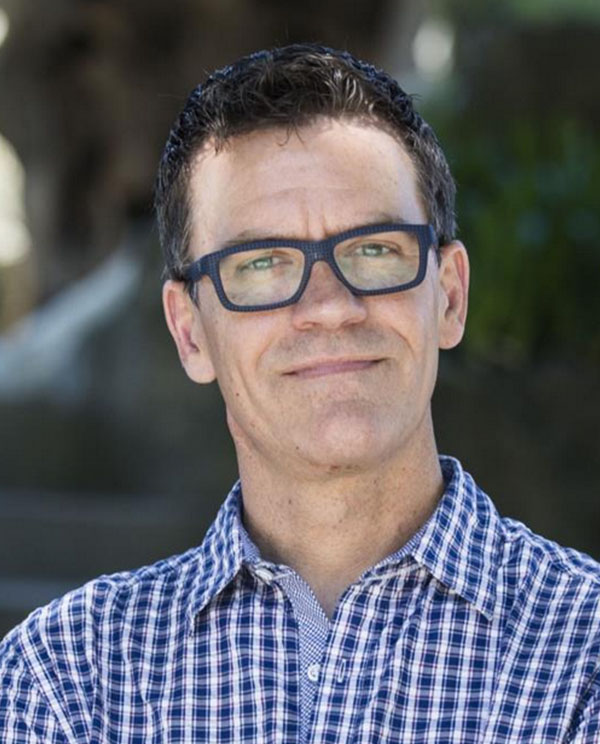 Stephen Russell is Priscilla Pond Flawn Regents Professor in Child Development, chair of the Department of Human Development and Family Sciences, and Director of the School of Human Ecology at the University of Texas at Austin. He is an expert in adolescent and young adult health, with a focus on sexual orientation and gender identity. He has served on the governing boards of the Society for Research in Child Development, the Sexuality Information and Education Council of the United States (SIECUS), National Council on Family Relations (he was elected fellow), the Society for Research on Adolescence (President, 2012-2014).
Stephen Russell is Priscilla Pond Flawn Regents Professor in Child Development, chair of the Department of Human Development and Family Sciences, and Director of the School of Human Ecology at the University of Texas at Austin. He is an expert in adolescent and young adult health, with a focus on sexual orientation and gender identity. He has served on the governing boards of the Society for Research in Child Development, the Sexuality Information and Education Council of the United States (SIECUS), National Council on Family Relations (he was elected fellow), the Society for Research on Adolescence (President, 2012-2014).
Dr. Eleanor K. Seaton
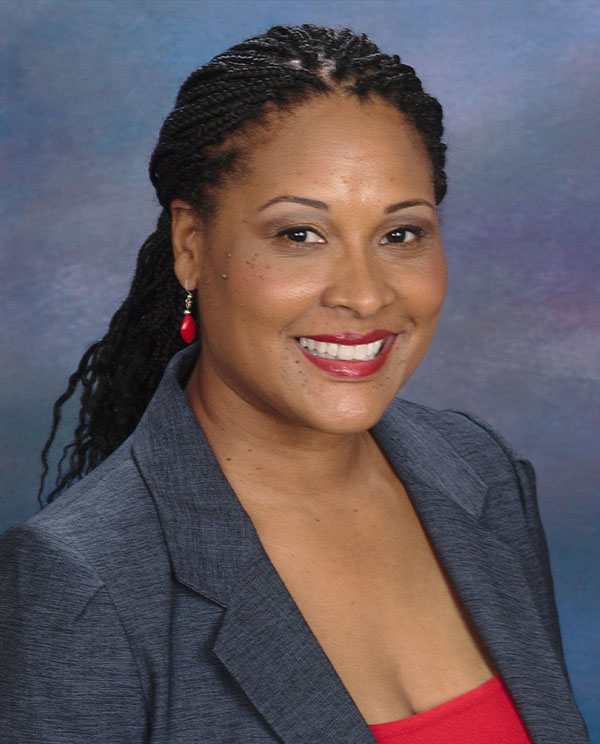 Eleanor K. Seaton is an Associate Professor, and the Director of Intersectionality and Interdisciplinarity in the Sanford School of Social and Family Dynamics at Arizona State University. Dr. Seaton is a developmental psychologist using quantitative, qualitative and mixed-methods to examine the impact of racism on Black youth’s mental health and development. Dr. Seaton served as an associate editor for Cultural Diversity and Ethnic Minority Psychology, and serves on the editorial boards of Developmental Psychology and Child Development. Dr. Seaton is the former chair of SRCD’s Ethnic and Racial Issues Committee and SRA’s Diversity and Equity Committee. Currently, Dr. Seaton serves on the Rapid Assessment and Response Strategy (RARS) team for SRCD. Dr. Seaton has a tendency to journal, travel, bake desserts, shop, read, watch movies and dance to Chicago style house music when relaxing.
Eleanor K. Seaton is an Associate Professor, and the Director of Intersectionality and Interdisciplinarity in the Sanford School of Social and Family Dynamics at Arizona State University. Dr. Seaton is a developmental psychologist using quantitative, qualitative and mixed-methods to examine the impact of racism on Black youth’s mental health and development. Dr. Seaton served as an associate editor for Cultural Diversity and Ethnic Minority Psychology, and serves on the editorial boards of Developmental Psychology and Child Development. Dr. Seaton is the former chair of SRCD’s Ethnic and Racial Issues Committee and SRA’s Diversity and Equity Committee. Currently, Dr. Seaton serves on the Rapid Assessment and Response Strategy (RARS) team for SRCD. Dr. Seaton has a tendency to journal, travel, bake desserts, shop, read, watch movies and dance to Chicago style house music when relaxing.
Dr. Rebecca M. B. White
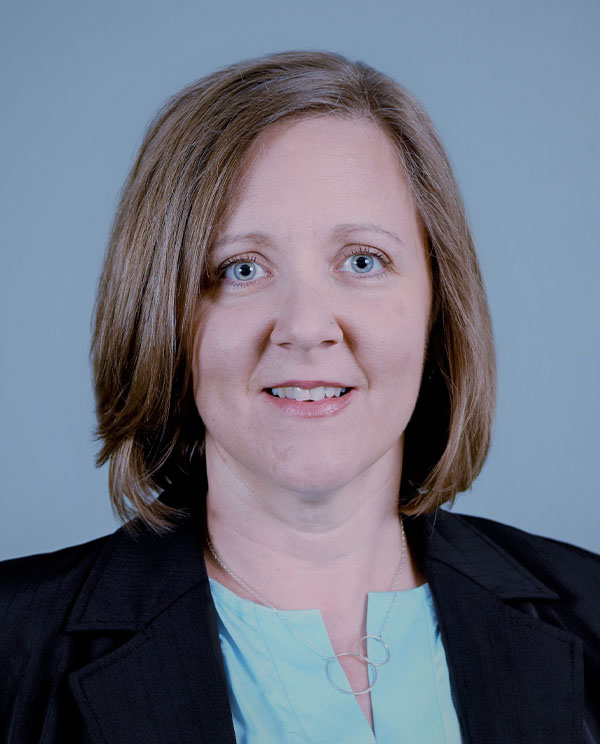 Rebecca is Associate Professor of Family and Human Development in the School of Social and Family Dynamics at Arizona State University (ASU). Broadly, Rebecca aspires to engage in meaningful scholarship (research, teaching, and service) geared toward addressing inequalities and promoting positive youth development. Her program of research examines Latinx adolescents’ development within cultural, neighborhood, and family contexts. Her work has been funded by the William T. Grant Foundation, the John Templeton Foundation, the National Institutes of Heath, and the National Science Foundation. She has published both empirical and conceptual pieces related to examining the intersecting implications of residential segregation and cultural adaptations for youth development in numerous outlets, including American Psychologist (doi: 10.1037/amp0000237), Child Development (doi: 10.1111/cdev.12772), JAMA Pediatrics (doi:10.1001/jamapediatrics.2020.0014), and others. She enthusiastically engages in mentoring emerging scholars, including those in the Society for Research in Child Development’s (SRCD) Frances Degen Horowitz Millennium Scholars Program. Rebecca has served on numerous editorial boards, as a member of SRCD’s Ethnic Racial Issues committee, as Secretary of SRCD’s Latinx Caucus, and as a leader in addressing White Supremacy. In these contexts, she engages with a group of magnificent scholars to promote a just version of the developmental sciences. Because she believes, especially in the context of a Lunch with the Leaders event, that it is essential to actively recognize multiple pathways to “leadership,” she wants to share that she trained in general studies and American Sign Language at New River Community College (2000), in human services counseling at Old Dominion University (2000), in public health at the University of Arizona (2003), and in family and human development at ASU (2008).
Rebecca is Associate Professor of Family and Human Development in the School of Social and Family Dynamics at Arizona State University (ASU). Broadly, Rebecca aspires to engage in meaningful scholarship (research, teaching, and service) geared toward addressing inequalities and promoting positive youth development. Her program of research examines Latinx adolescents’ development within cultural, neighborhood, and family contexts. Her work has been funded by the William T. Grant Foundation, the John Templeton Foundation, the National Institutes of Heath, and the National Science Foundation. She has published both empirical and conceptual pieces related to examining the intersecting implications of residential segregation and cultural adaptations for youth development in numerous outlets, including American Psychologist (doi: 10.1037/amp0000237), Child Development (doi: 10.1111/cdev.12772), JAMA Pediatrics (doi:10.1001/jamapediatrics.2020.0014), and others. She enthusiastically engages in mentoring emerging scholars, including those in the Society for Research in Child Development’s (SRCD) Frances Degen Horowitz Millennium Scholars Program. Rebecca has served on numerous editorial boards, as a member of SRCD’s Ethnic Racial Issues committee, as Secretary of SRCD’s Latinx Caucus, and as a leader in addressing White Supremacy. In these contexts, she engages with a group of magnificent scholars to promote a just version of the developmental sciences. Because she believes, especially in the context of a Lunch with the Leaders event, that it is essential to actively recognize multiple pathways to “leadership,” she wants to share that she trained in general studies and American Sign Language at New River Community College (2000), in human services counseling at Old Dominion University (2000), in public health at the University of Arizona (2003), and in family and human development at ASU (2008).
Friday, April 9, 8:45am - 9:45am EDT
Dr. Margarita Azmitia
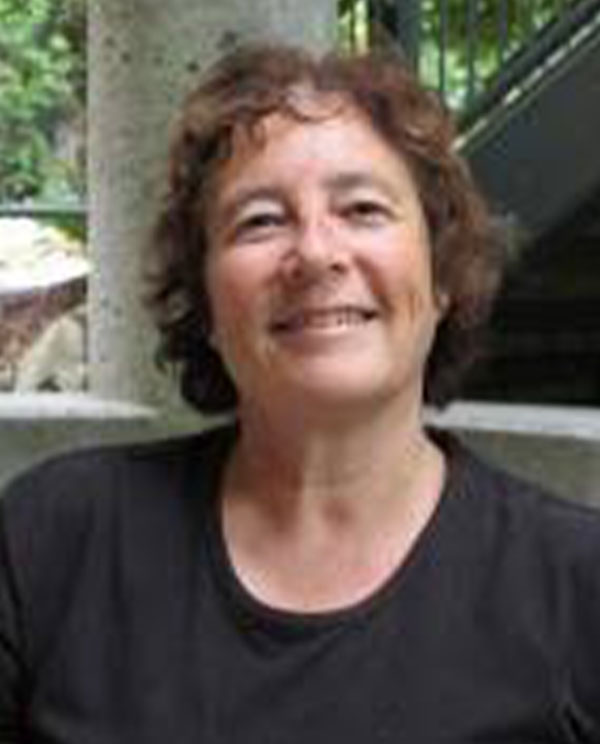 I am an immigrant from Guatemala and a professor of psychology at UC-Santa Cruz. I study the role of identity development and family, peer, and mentorship relationships in racially diverse, low-income adolescents and emerging adults' educational and life pathways. I also research how discrimination and sense of belonging affect students' motivation and engagement in middle school, high school, and college. I primarily investigate these issues through surveys and interviews. I look forward to chatting with you.
I am an immigrant from Guatemala and a professor of psychology at UC-Santa Cruz. I study the role of identity development and family, peer, and mentorship relationships in racially diverse, low-income adolescents and emerging adults' educational and life pathways. I also research how discrimination and sense of belonging affect students' motivation and engagement in middle school, high school, and college. I primarily investigate these issues through surveys and interviews. I look forward to chatting with you.
Dr. Sheretta T. Butler-Barnes
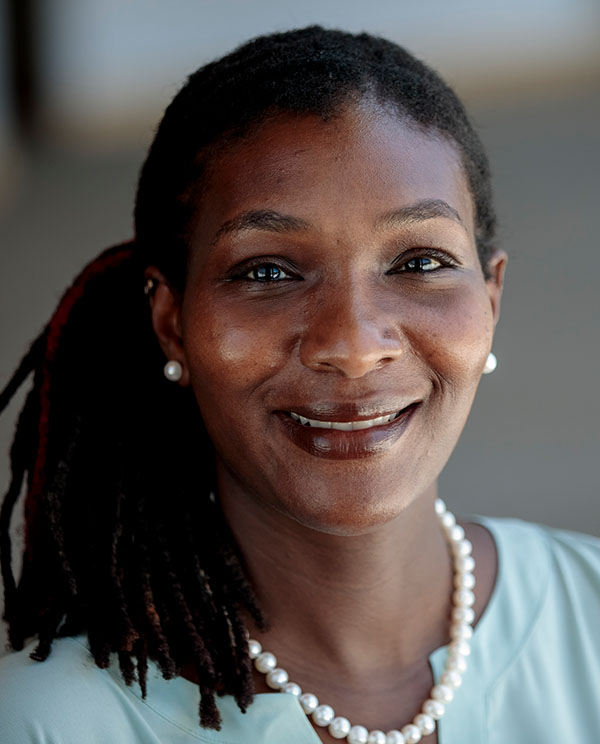 Dr. Sheretta T. Butler-Barnes is an Associate Professor of Social Work at Washington University in St. Louis (WUSTL). A developmental psychologist and quantitative methodologist, Butler-Barnes line of research includes examining how Black youth draw on individual and cultural assets and resources to thrive despite challenges to their identities from structural, individual, and cultural racism. Her expertise and scholarly work is on Black children and youth, risk and resilience, academic achievement, and wellbeing. Butler-Barnes also has extensive experience in youth programming as it pertains to Black adolescent girls. Dr. Butler-Barnes has a Ph.D. in Developmental Psychology.
Dr. Sheretta T. Butler-Barnes is an Associate Professor of Social Work at Washington University in St. Louis (WUSTL). A developmental psychologist and quantitative methodologist, Butler-Barnes line of research includes examining how Black youth draw on individual and cultural assets and resources to thrive despite challenges to their identities from structural, individual, and cultural racism. Her expertise and scholarly work is on Black children and youth, risk and resilience, academic achievement, and wellbeing. Butler-Barnes also has extensive experience in youth programming as it pertains to Black adolescent girls. Dr. Butler-Barnes has a Ph.D. in Developmental Psychology.
Dr. Matthew A. Diemer
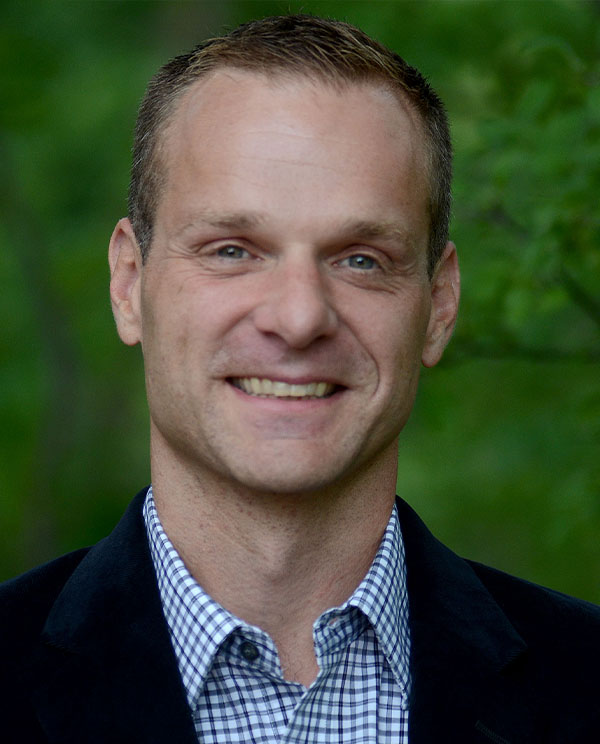 Matthew A. Diemer examines how young people analyze, negotiate, and challenge racial, ethnic, socioeconomic and other constraints in school, college, work, and civic/political institutions. He is particularly interested in how marginalized people develop critical consciousness, which is a careful analysis of societal inequalities, the motivation to produce social change, and participation in social or political action to challenge inequality. His recent work uses item response theory (IRT) to validate a short form of the Critical Consciousness Scale (or, ShoCCS) and examines how family wealth contributes to intergenerational success. His research is currently funded by grants from the Institute for Education Sciences, National Institute of Health, the National Science Foundation, Spencer Foundation, the William T. Grant Foundation, and the Mental Research Institute. He received his Ph.D. from Boston College.
Matthew A. Diemer examines how young people analyze, negotiate, and challenge racial, ethnic, socioeconomic and other constraints in school, college, work, and civic/political institutions. He is particularly interested in how marginalized people develop critical consciousness, which is a careful analysis of societal inequalities, the motivation to produce social change, and participation in social or political action to challenge inequality. His recent work uses item response theory (IRT) to validate a short form of the Critical Consciousness Scale (or, ShoCCS) and examines how family wealth contributes to intergenerational success. His research is currently funded by grants from the Institute for Education Sciences, National Institute of Health, the National Science Foundation, Spencer Foundation, the William T. Grant Foundation, and the Mental Research Institute. He received his Ph.D. from Boston College.
Dr. Shayla Holub
 Shayla Holub is an Associate Professor and the Department Chair for Psychology at the University of Texas at Dallas. Dr. Holub's research examines how parents socialize healthy eating habits and weight attitudes in children. Her research also explores the development of body image and weight bias during early childhood.
Shayla Holub is an Associate Professor and the Department Chair for Psychology at the University of Texas at Dallas. Dr. Holub's research examines how parents socialize healthy eating habits and weight attitudes in children. Her research also explores the development of body image and weight bias during early childhood.
Dr. Lisa Kiang
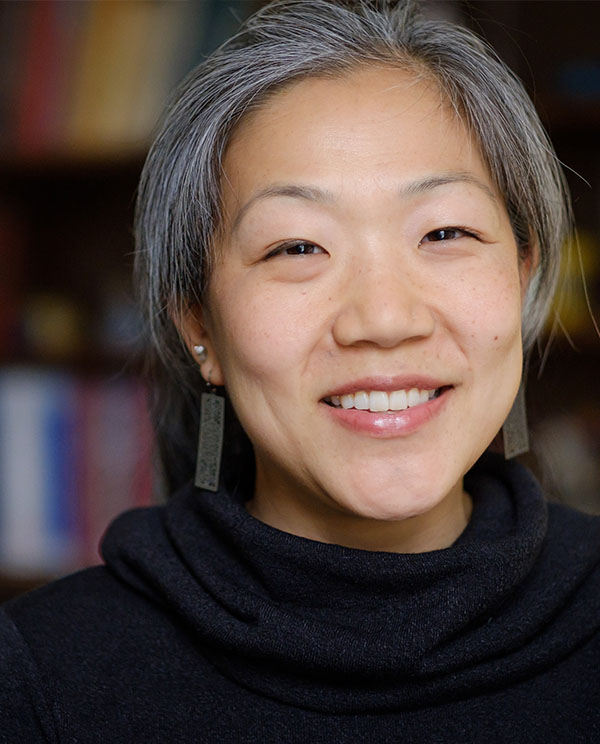 Lisa Kiang is a Professor of Psychology at Wake Forest University. Her background is in developmental psychology. Research interests include ethnic/racial identity and social relationships, with an emphasis on positive well-being among minoritized adolescents.
Lisa Kiang is a Professor of Psychology at Wake Forest University. Her background is in developmental psychology. Research interests include ethnic/racial identity and social relationships, with an emphasis on positive well-being among minoritized adolescents.
Dr. Joshua Sparrow
 Joshua Sparrow, M.D., DFAACAP, is executive director of the Brazelton Touchpoints Center (BTC) in the Division of Development of Medicine at Boston Children’s Hospital, where he also holds an appointment in the Department of Psychiatry. Dr. Sparrow’s care in the 1990s for children hospitalized for severe psychiatric disturbances, often associated with physical and sexual abuse, and for developmental delays aggravated by social and economic deprivation, prompted his interest in the social determinants of health, and community-based prevention and health promotion. He served as principal investigator on numerous foundation grants and the National Center for Parent, Family and Community Engagement (Administration for Children and Families) from 2010-2020, and is associate professor part time in psychiatry at Harvard Medical School. At the Brazelton Touchpoints Center, his work focuses on cultural adaptations of family support programs, organizational professional development, and aligning systems of care with community strengths and priorities. Examples include collaborative consultation with the Harlem Children’s Zone and Tribal Early Head Start/Head Start Programs among others. BTC provides professional and leadership development, organizational learning and change, and research and evaluation for family-facing professionals in pediatrics, early childhood, infant mental health, home visiting, and child welfare. BTC is home to the Touchpoints Approach, the Brazelton Institute (Newborn Behavioral Observation and Neonatal Behavioral Assessment Scale), Family Connections, and the BTC Research and Evaluation team.
Joshua Sparrow, M.D., DFAACAP, is executive director of the Brazelton Touchpoints Center (BTC) in the Division of Development of Medicine at Boston Children’s Hospital, where he also holds an appointment in the Department of Psychiatry. Dr. Sparrow’s care in the 1990s for children hospitalized for severe psychiatric disturbances, often associated with physical and sexual abuse, and for developmental delays aggravated by social and economic deprivation, prompted his interest in the social determinants of health, and community-based prevention and health promotion. He served as principal investigator on numerous foundation grants and the National Center for Parent, Family and Community Engagement (Administration for Children and Families) from 2010-2020, and is associate professor part time in psychiatry at Harvard Medical School. At the Brazelton Touchpoints Center, his work focuses on cultural adaptations of family support programs, organizational professional development, and aligning systems of care with community strengths and priorities. Examples include collaborative consultation with the Harlem Children’s Zone and Tribal Early Head Start/Head Start Programs among others. BTC provides professional and leadership development, organizational learning and change, and research and evaluation for family-facing professionals in pediatrics, early childhood, infant mental health, home visiting, and child welfare. BTC is home to the Touchpoints Approach, the Brazelton Institute (Newborn Behavioral Observation and Neonatal Behavioral Assessment Scale), Family Connections, and the BTC Research and Evaluation team.
Dr. Martha Zaslow
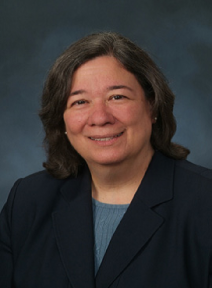 Martha Zaslow has been both Interim Executive Director and previously Director for Policy at SRCD. She is also a Senior Scholar at Child Trends where her research focuses on quality in early care and education and the professional development of the early childhood workforce. She helps to implement the Foundation for Child Development Promising Scholars Program.
Martha Zaslow has been both Interim Executive Director and previously Director for Policy at SRCD. She is also a Senior Scholar at Child Trends where her research focuses on quality in early care and education and the professional development of the early childhood workforce. She helps to implement the Foundation for Child Development Promising Scholars Program.
Friday, April 9, 2:00pm - 3:00pm EDT
Dr. Mayra Bámaca
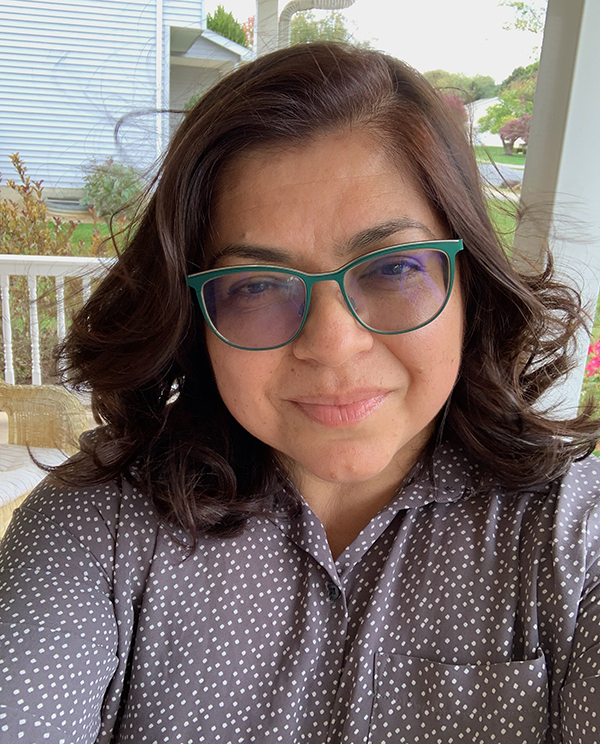 Dr. Bámaca is an Associate Professor in Psychology at the University of California, Merced. She began her faculty career at The Pennsylvania State University where she was a professor in Human Development and Family Studies. She immigrated from Guatemala at the age of 17. Her undergraduate education was completed at Cal State University, Northridge. There, she met a wonderful professor who asked her "have you thought about getting a Ph.D.?" to which Dr. B replied, "what is a Ph.D.?" Dr. Bámaca's research focuses on providing a more in-depth understanding of Latino youth and families’ experiences across development and contextual realities. Specifically, her work lies at the intersection of culture (e.g., acculturation), developmental processes (e.g., autonomy, puberty) and contexts of development (e.g., family, peers, neighborhoods) and how these domains contribute to the behavioral and health outcomes of Latino youth. She has written about Latinos residing in traditional immigrant destinations such as Los Angeles and Phoenix as well as families residing in new locations/new destinations such Harrisburg, Pennsylvania. She has also collaborated with a colleague in Spain who collected data from Latin American immigrants residing in Spain. She has been conducting research with Latino populations for over 20 years.
Dr. Bámaca is an Associate Professor in Psychology at the University of California, Merced. She began her faculty career at The Pennsylvania State University where she was a professor in Human Development and Family Studies. She immigrated from Guatemala at the age of 17. Her undergraduate education was completed at Cal State University, Northridge. There, she met a wonderful professor who asked her "have you thought about getting a Ph.D.?" to which Dr. B replied, "what is a Ph.D.?" Dr. Bámaca's research focuses on providing a more in-depth understanding of Latino youth and families’ experiences across development and contextual realities. Specifically, her work lies at the intersection of culture (e.g., acculturation), developmental processes (e.g., autonomy, puberty) and contexts of development (e.g., family, peers, neighborhoods) and how these domains contribute to the behavioral and health outcomes of Latino youth. She has written about Latinos residing in traditional immigrant destinations such as Los Angeles and Phoenix as well as families residing in new locations/new destinations such Harrisburg, Pennsylvania. She has also collaborated with a colleague in Spain who collected data from Latin American immigrants residing in Spain. She has been conducting research with Latino populations for over 20 years.
Dr. Aprile Benner
 My substantive research interests center on the development of low-income and race/ethnic minority youth, investigating how the everyday contexts of children and adolescents shape their developmental outcomes. As a developmental psychologist, the core of my research program is a fundamental developmental question—what are the continuities and changes in the social, emotional, and cognitive growth and maturation of young people? Reflecting my training in educational demography, I work to answer this question with an awareness of how such developmental patterns are embedded in the groups, contexts, and social structures of society. Much of my research to date has focused on discrimination and marginalization and school transitions. As a first-generation college student, I am also particularly attuned to the supportive interactions with important others in adolescents' lives that promote their academic success as they move through the educational pipeline.
My substantive research interests center on the development of low-income and race/ethnic minority youth, investigating how the everyday contexts of children and adolescents shape their developmental outcomes. As a developmental psychologist, the core of my research program is a fundamental developmental question—what are the continuities and changes in the social, emotional, and cognitive growth and maturation of young people? Reflecting my training in educational demography, I work to answer this question with an awareness of how such developmental patterns are embedded in the groups, contexts, and social structures of society. Much of my research to date has focused on discrimination and marginalization and school transitions. As a first-generation college student, I am also particularly attuned to the supportive interactions with important others in adolescents' lives that promote their academic success as they move through the educational pipeline.
Dr. Rachel Chazen Cohen
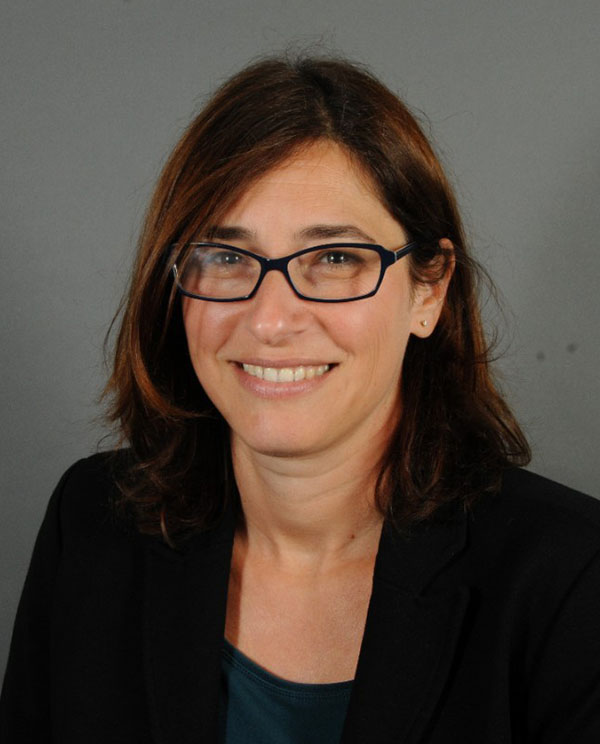 Rachel Chazan Cohen is an Associate Professor and Director of the Early Childhood Program at the University of Connecticut. Throughout her career, working in government and academic settings, Rachel has worked to bridge the worlds of policy, practice and research. She aims both to bring cutting edge research to decisionmakers who make state and federal policies as well as those professionals who work directly with children and families and also to ensure that research is being done that addresses the pressing questions that policymakers and practitioners have. Her own research focuses on the biological, relational, and environmental factors influencing children’s development, and on the creation, evaluation, and improvement of intervention programs for families with infants and toddlers, including home visiting, child care, and Early Head Start. Rachel is particularly interested in the teacher and home visitor competencies necessary for success in working with families with young children and how to build competencies through pre- and in-service professional development.
Rachel Chazan Cohen is an Associate Professor and Director of the Early Childhood Program at the University of Connecticut. Throughout her career, working in government and academic settings, Rachel has worked to bridge the worlds of policy, practice and research. She aims both to bring cutting edge research to decisionmakers who make state and federal policies as well as those professionals who work directly with children and families and also to ensure that research is being done that addresses the pressing questions that policymakers and practitioners have. Her own research focuses on the biological, relational, and environmental factors influencing children’s development, and on the creation, evaluation, and improvement of intervention programs for families with infants and toddlers, including home visiting, child care, and Early Head Start. Rachel is particularly interested in the teacher and home visitor competencies necessary for success in working with families with young children and how to build competencies through pre- and in-service professional development.
Dr. Melissa Delgado
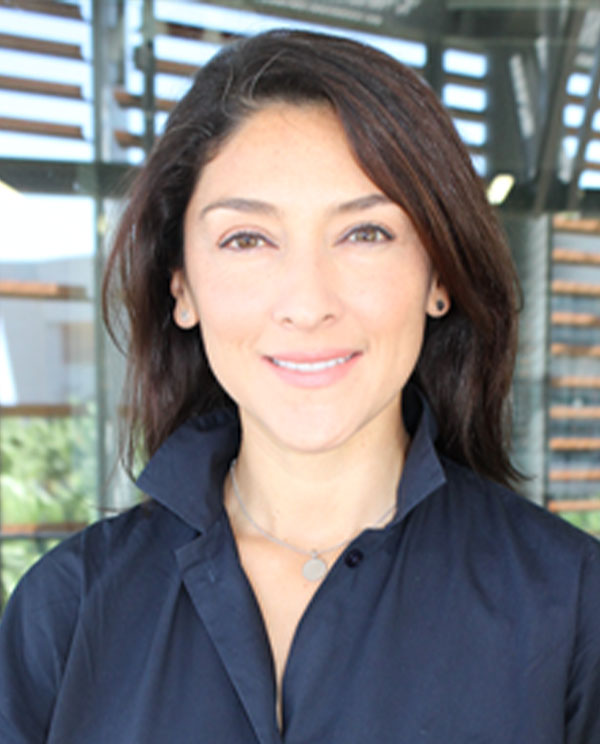 Dr. Melissa Delgado is Associate Professor and Associate Chair of Family Studies and Human Development at The University of Arizona, where she is also co-chair of the Latinx Families Research Initiative of the Frances McClelland Institute for Children, Youth, and Families. Dr. Delgado trained in family and human development and as a W.T. Grant Foundation post-doctoral fellow at Arizona State University. Taking a strengths-based approach, her collaborative program of research focuses on the mechanisms and adaptive cultural responses that reduce racial/ethnic inequality and promote positive development among early to late US-Latin American adolescents, particularly those of Mexican origin. In her most recent work, she employs mixed-methods (i.e., quantitative surveys and focus groups) to examine processes involving academic identity and sociocultural school climate. Dr. Delgado is also the 2021-2023 chair of the SRCD Latinx Caucus and the 2020-2021 co-chair of the Publications Committee of the Society for Research on Adolescence. Including her time as faculty at Texas State University, where she was also the graduate program coordinator, she has mentored over 50 undergraduate and graduate students.
Dr. Melissa Delgado is Associate Professor and Associate Chair of Family Studies and Human Development at The University of Arizona, where she is also co-chair of the Latinx Families Research Initiative of the Frances McClelland Institute for Children, Youth, and Families. Dr. Delgado trained in family and human development and as a W.T. Grant Foundation post-doctoral fellow at Arizona State University. Taking a strengths-based approach, her collaborative program of research focuses on the mechanisms and adaptive cultural responses that reduce racial/ethnic inequality and promote positive development among early to late US-Latin American adolescents, particularly those of Mexican origin. In her most recent work, she employs mixed-methods (i.e., quantitative surveys and focus groups) to examine processes involving academic identity and sociocultural school climate. Dr. Delgado is also the 2021-2023 chair of the SRCD Latinx Caucus and the 2020-2021 co-chair of the Publications Committee of the Society for Research on Adolescence. Including her time as faculty at Texas State University, where she was also the graduate program coordinator, she has mentored over 50 undergraduate and graduate students.
Dr. Natalie D. Eggum-Wilkens
 Natalie D. Eggum-Wilkens is an Associate Professor and the Director of the ECLiPSE Research Lab in the School of Social and Family Dynamics at Arizona State University. She researches child and social factors that shape children’s and adolescents' social, school, and psychological adjustment nationally and internationally. She has published over 50 articles and chapters, and her research has been funded by the Eunice Kennedy Shriver National Institute of Child Health and Human Development and The Brady Education Foundation. She is a Consulting Editor for Developmental Psychology. Her methodological interests involve latent variable modeling of longitudinal data. She teaches undergraduate-level statistics, as well as graduate-level advanced measurement and statistical analysis courses. Her teaching was recognized with the 2014 Zebulon Pearce Distinguished Teaching Award in Social Sciences by the College of Liberal Arts and Sciences, and the 2016 Centennial Professorship Award by the Associated Students of Arizona State University. Her service activities facilitate diverse emerging scholars’ exposure to, preparation for, and success in social science careers, as well as improve students’ and scholars’ understanding and application of quantitative methods.
Natalie D. Eggum-Wilkens is an Associate Professor and the Director of the ECLiPSE Research Lab in the School of Social and Family Dynamics at Arizona State University. She researches child and social factors that shape children’s and adolescents' social, school, and psychological adjustment nationally and internationally. She has published over 50 articles and chapters, and her research has been funded by the Eunice Kennedy Shriver National Institute of Child Health and Human Development and The Brady Education Foundation. She is a Consulting Editor for Developmental Psychology. Her methodological interests involve latent variable modeling of longitudinal data. She teaches undergraduate-level statistics, as well as graduate-level advanced measurement and statistical analysis courses. Her teaching was recognized with the 2014 Zebulon Pearce Distinguished Teaching Award in Social Sciences by the College of Liberal Arts and Sciences, and the 2016 Centennial Professorship Award by the Associated Students of Arizona State University. Her service activities facilitate diverse emerging scholars’ exposure to, preparation for, and success in social science careers, as well as improve students’ and scholars’ understanding and application of quantitative methods.
Dr. Elizabeth Gershoff
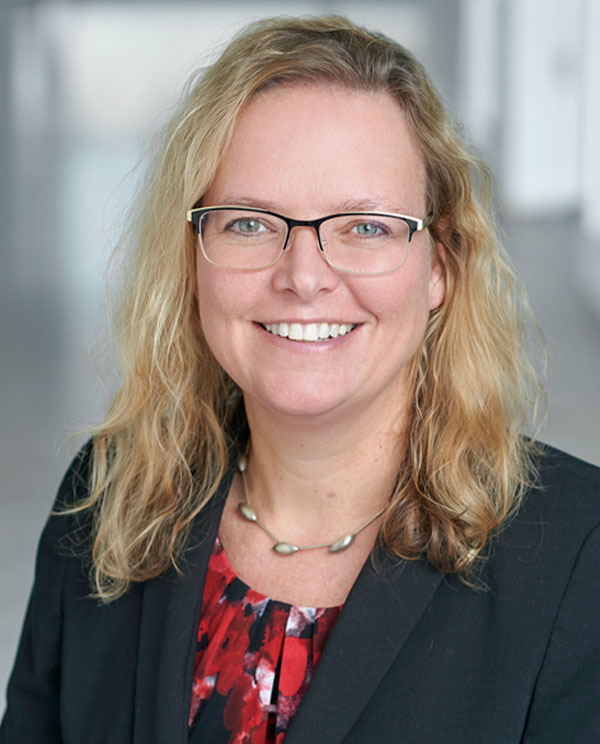 Elizabeth Gershoff is the Amy Johnson McLaughlin Centennial Professor of Human Development and Family Sciences and the Director of the Population Research Center, both at the University of Texas at Austin. Her research focuses on how parental and school discipline affect child and youth development and how parent education and early education programs can improve the lives of at risk children. She is an internationally recognized expert on the effects of corporal punishment on children. Dr. Gershoff earned a Ph.D. in Child Development at the University of Texas and completed postdoctoral training in psychology and prevention research at Arizona State University. She was previously an associate professor of social work at the University of Michigan and a research scientist at the National Center for Children in Poverty at Columbia University.
Elizabeth Gershoff is the Amy Johnson McLaughlin Centennial Professor of Human Development and Family Sciences and the Director of the Population Research Center, both at the University of Texas at Austin. Her research focuses on how parental and school discipline affect child and youth development and how parent education and early education programs can improve the lives of at risk children. She is an internationally recognized expert on the effects of corporal punishment on children. Dr. Gershoff earned a Ph.D. in Child Development at the University of Texas and completed postdoctoral training in psychology and prevention research at Arizona State University. She was previously an associate professor of social work at the University of Michigan and a research scientist at the National Center for Children in Poverty at Columbia University.
Dr. Margaret T. Owen
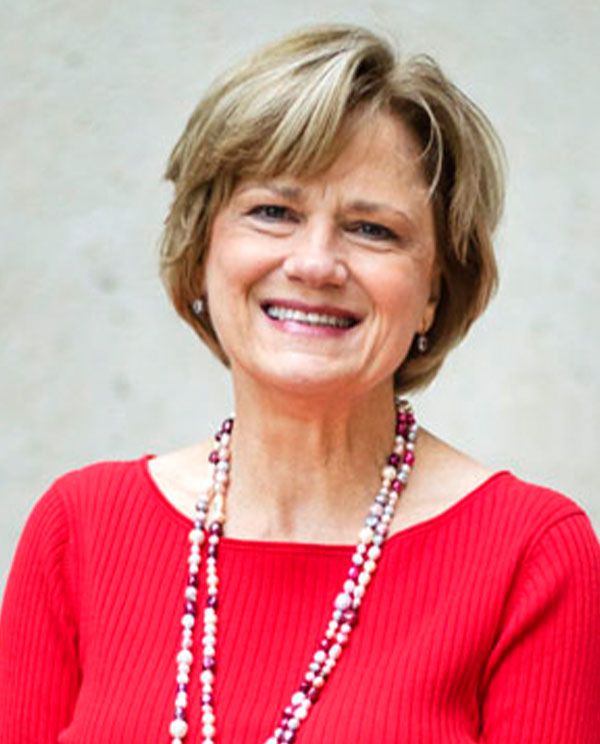 Dr. Margaret Owen is a leading researcher in the areas of parent-child and caregiver-child relationships and young children’s development in the context of these and other close relationships. Some of her recent research focuses on how the qualities of parent-toddler communication lay a foundation for successful language learning. She has collaborated with a large team translating these findings into interventions with parents and child-care providers to support low-income children’s language success. In another large collaborative effort, she is studying individual, family, and contextual factors contributing to risk and resilience in the development of school readiness and school achievement in a longitudinal study of low-income, African American and Latina children in Dallas, now spanning from toddlerhood through middle school. Dr. Owen previously studied the effects of maternal employment and child care on children’s development, from infancy through adolescence as an investigator on the NICHD Study of Early Child Care and Youth Development throughout its multiple phases. Dr. Owen is the Director of the UT Dallas Center for Children and Families. She is a Fellow of the Association for Psychological Science and has received the Rueben Hill Award from the National Council on Family Relations and the Margaret Cone Impact Award of the Dallas Association for the Education of Young Children. Dr. Owen earned her bachelor’s degree from Oberlin College, her master’s degree from the University of Kansas, and her doctoral degree from the University of Michigan.
Dr. Margaret Owen is a leading researcher in the areas of parent-child and caregiver-child relationships and young children’s development in the context of these and other close relationships. Some of her recent research focuses on how the qualities of parent-toddler communication lay a foundation for successful language learning. She has collaborated with a large team translating these findings into interventions with parents and child-care providers to support low-income children’s language success. In another large collaborative effort, she is studying individual, family, and contextual factors contributing to risk and resilience in the development of school readiness and school achievement in a longitudinal study of low-income, African American and Latina children in Dallas, now spanning from toddlerhood through middle school. Dr. Owen previously studied the effects of maternal employment and child care on children’s development, from infancy through adolescence as an investigator on the NICHD Study of Early Child Care and Youth Development throughout its multiple phases. Dr. Owen is the Director of the UT Dallas Center for Children and Families. She is a Fellow of the Association for Psychological Science and has received the Rueben Hill Award from the National Council on Family Relations and the Margaret Cone Impact Award of the Dallas Association for the Education of Young Children. Dr. Owen earned her bachelor’s degree from Oberlin College, her master’s degree from the University of Kansas, and her doctoral degree from the University of Michigan.
Dr. Andrea Romero
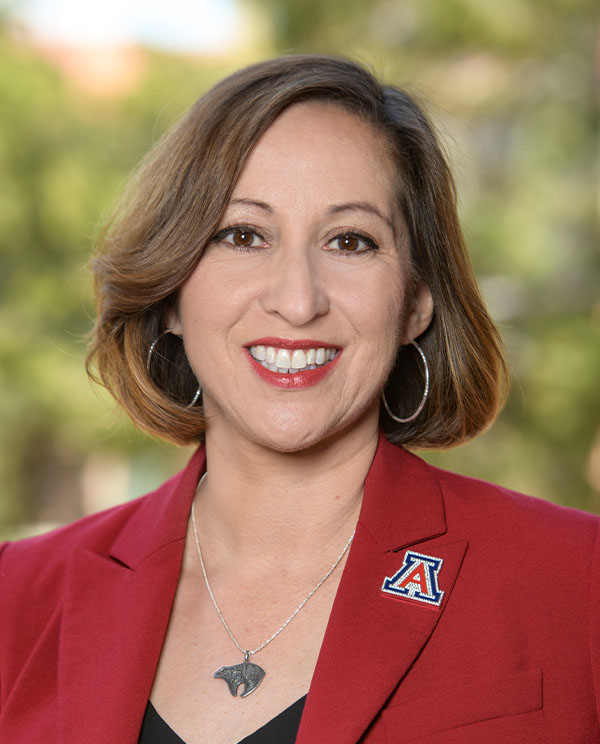 Dr. Andrea Romero became the Vice Provost for Faculty Affairs in January 2019. She is the lead administrator on faculty matters related to professional development, career advancement, and support which include hiring, promotion, annual and five-year reviews, leadership development, and diversity initiatives for tenure-track, career-track, continuing status professionals, and academic administrators. She is co-owner of two initiatives in the Office of Strategic Initiatives: Our Best Work Environment and Hispanic-Serving Institution Faculty and Research Initiatives. Dr. Romero’s scholarly work has examined community-based participatory action research methods to end health disparities in underprivileged communities. In addition to authoring two books and publishing numerous research articles, her externally funded research agenda has looked to build community partnerships to help find solutions with the common goal of equity and social justice. She has received numerous awards for her leadership and service, including the Cesar Chavez Award, the Dr. Alfredo De Los Santos Award for Service and Teaching, Mujer en la Lucha Award, the Woman of the Year Award by the Hispanic Professional Action Committee, and the Richard Ruiz Diversity Leadership Faculty Award. She is currently President-Elect for the National Latinx Psychological Association. She was a member of the 2017-2018 Academic Leadership Institute cohort. Dr. Romero has founded and lead faculty organizations that support diversity initiatives and leadership development on campus. Dr. Romero is a professor of Family Studies and Human Development in the College of Agriculture and Life Sciences and a faculty affiliate in Psychology, Mexican American Studies, Gender and Women Studies, Latin American Studies, and Public Health. She served as the director of the Frances McClelland Institute for Children, Youth, and Families from 2015-2019. She earned a doctorate in social psychology and a master's in psychology from the University of Houston, where her emphasis was quantitative methodology, Latinx psychology, and adolescent health. She worked at Stanford University's School of Medicine in the Prevention Research Center before becoming a faculty member at the University of Arizona in 2000. Through leadership, collaboration, and innovation, Dr. Romero works closely with deans and department heads to support their work and to recruit and retain high-quality faculty, as well as to work with them to improve transparency, equity, and trust. She brings a strong interdisciplinary perspective and a solid track record of mentoring diverse faculty. Andrea has spent decades researching ways to get communities to collaborate to solve issues. She is excited and committed to bringing these perspectives to the Office of Faculty Affairs to create and nurture a positive university work environment that contributes to the safety, well-being, and academic success of all faculty.
Dr. Andrea Romero became the Vice Provost for Faculty Affairs in January 2019. She is the lead administrator on faculty matters related to professional development, career advancement, and support which include hiring, promotion, annual and five-year reviews, leadership development, and diversity initiatives for tenure-track, career-track, continuing status professionals, and academic administrators. She is co-owner of two initiatives in the Office of Strategic Initiatives: Our Best Work Environment and Hispanic-Serving Institution Faculty and Research Initiatives. Dr. Romero’s scholarly work has examined community-based participatory action research methods to end health disparities in underprivileged communities. In addition to authoring two books and publishing numerous research articles, her externally funded research agenda has looked to build community partnerships to help find solutions with the common goal of equity and social justice. She has received numerous awards for her leadership and service, including the Cesar Chavez Award, the Dr. Alfredo De Los Santos Award for Service and Teaching, Mujer en la Lucha Award, the Woman of the Year Award by the Hispanic Professional Action Committee, and the Richard Ruiz Diversity Leadership Faculty Award. She is currently President-Elect for the National Latinx Psychological Association. She was a member of the 2017-2018 Academic Leadership Institute cohort. Dr. Romero has founded and lead faculty organizations that support diversity initiatives and leadership development on campus. Dr. Romero is a professor of Family Studies and Human Development in the College of Agriculture and Life Sciences and a faculty affiliate in Psychology, Mexican American Studies, Gender and Women Studies, Latin American Studies, and Public Health. She served as the director of the Frances McClelland Institute for Children, Youth, and Families from 2015-2019. She earned a doctorate in social psychology and a master's in psychology from the University of Houston, where her emphasis was quantitative methodology, Latinx psychology, and adolescent health. She worked at Stanford University's School of Medicine in the Prevention Research Center before becoming a faculty member at the University of Arizona in 2000. Through leadership, collaboration, and innovation, Dr. Romero works closely with deans and department heads to support their work and to recruit and retain high-quality faculty, as well as to work with them to improve transparency, equity, and trust. She brings a strong interdisciplinary perspective and a solid track record of mentoring diverse faculty. Andrea has spent decades researching ways to get communities to collaborate to solve issues. She is excited and committed to bringing these perspectives to the Office of Faculty Affairs to create and nurture a positive university work environment that contributes to the safety, well-being, and academic success of all faculty.